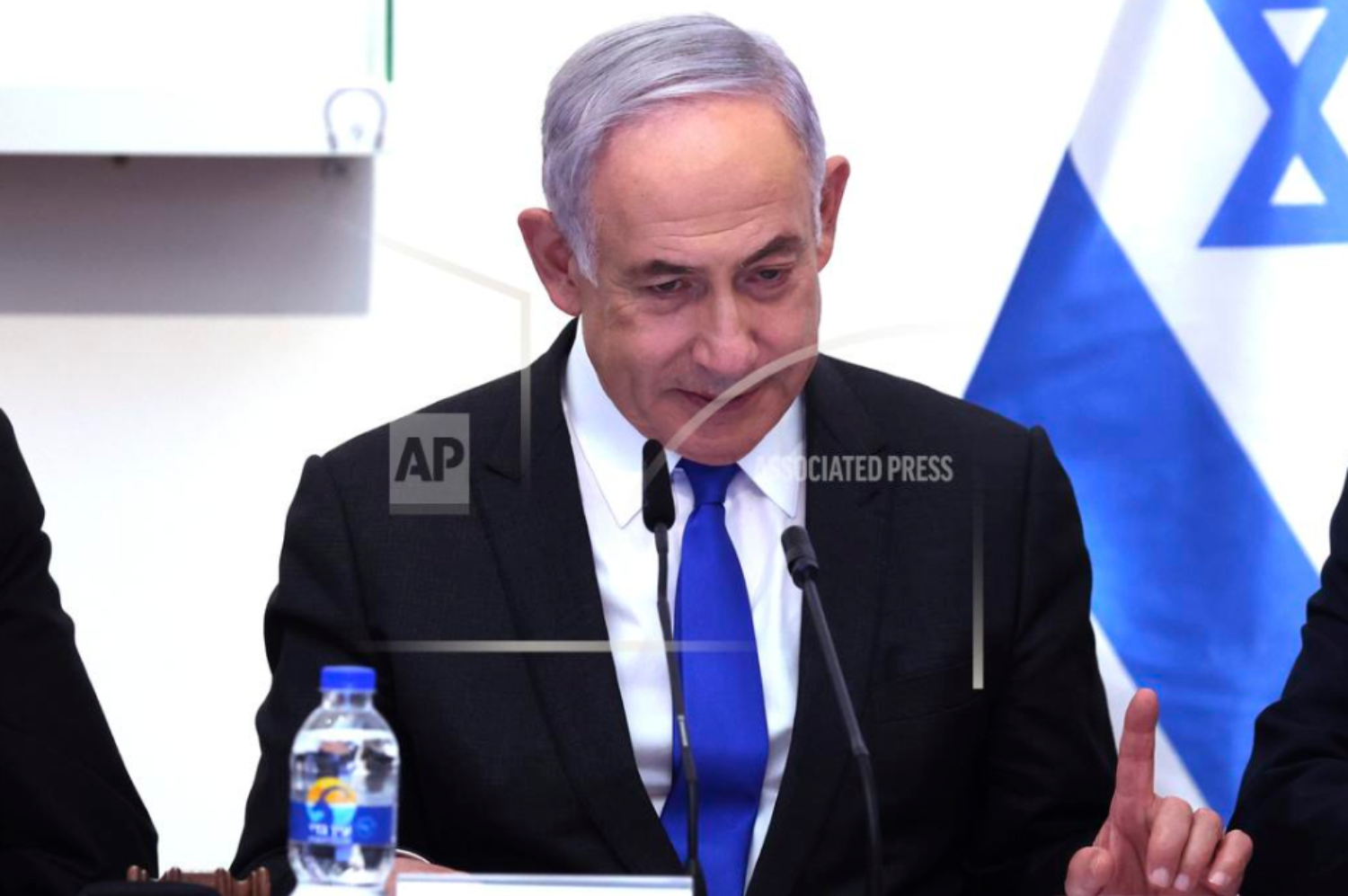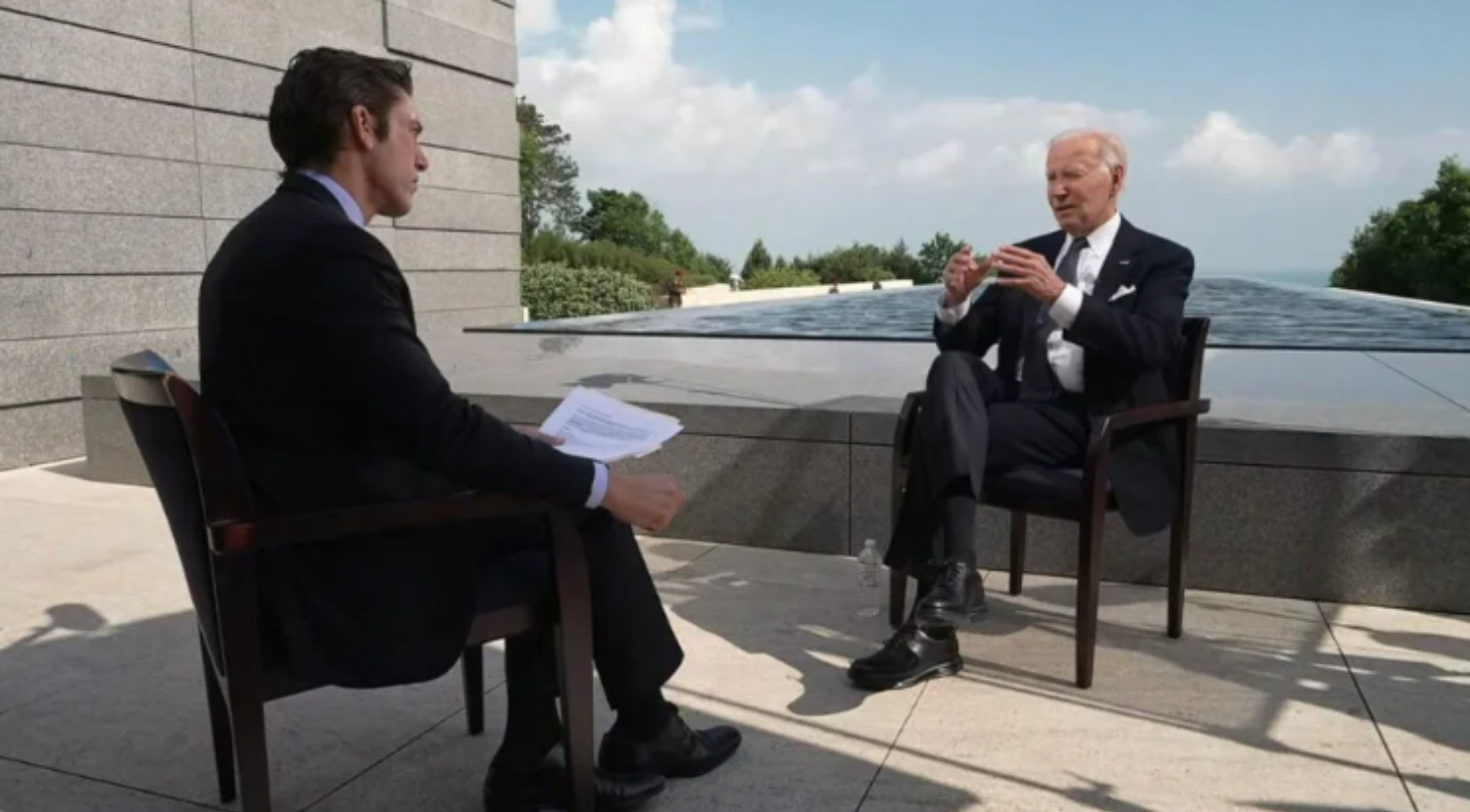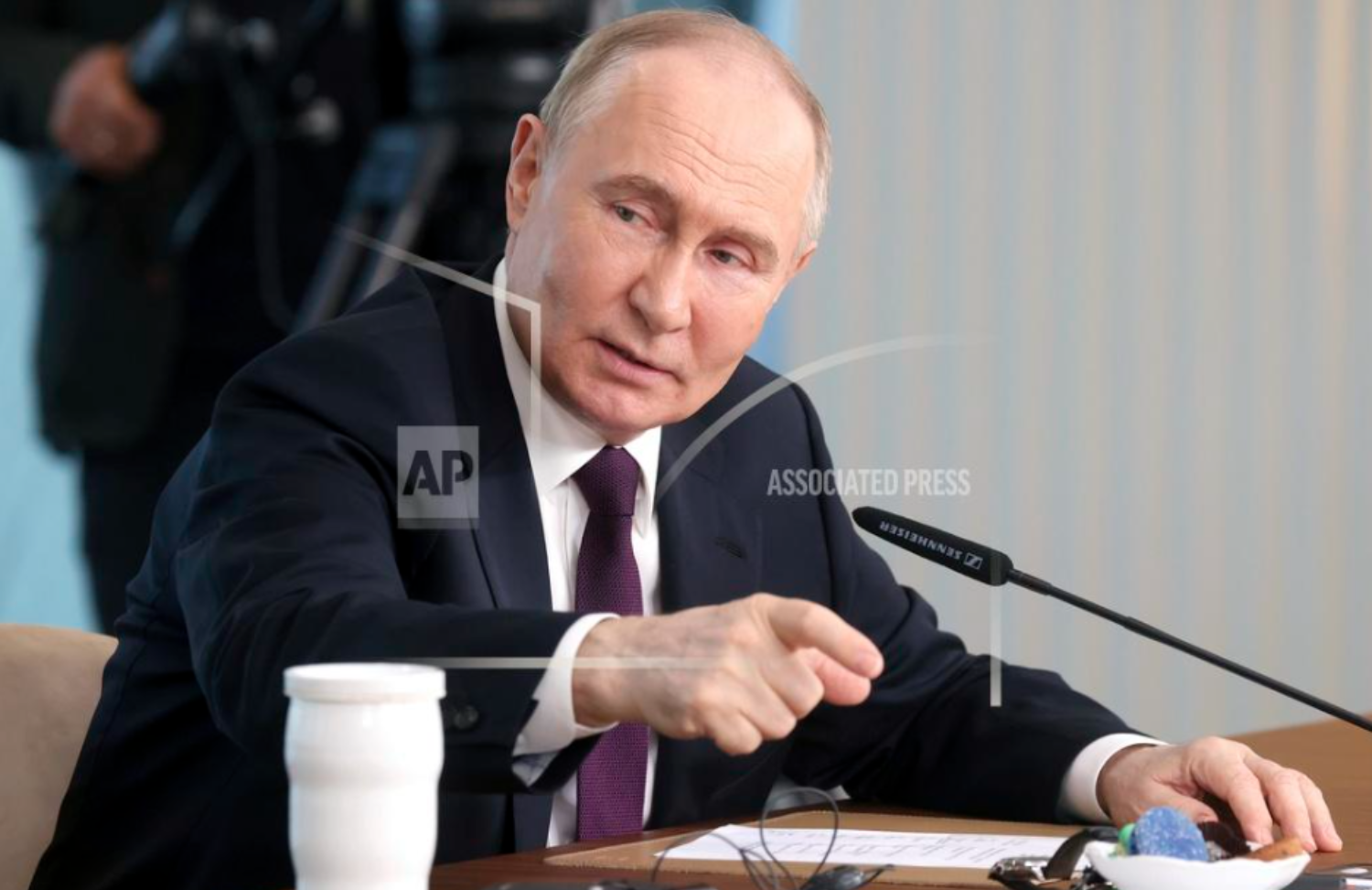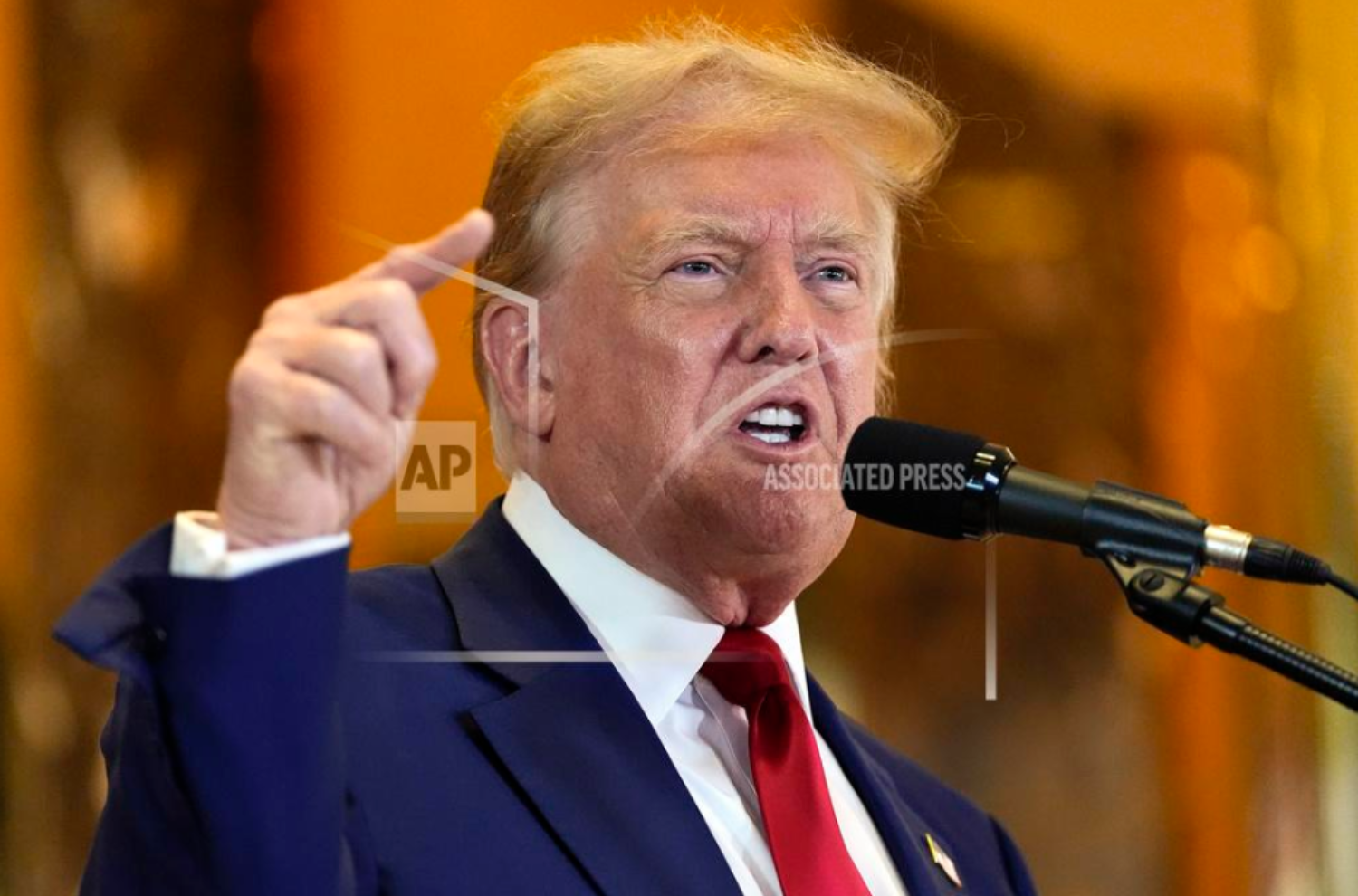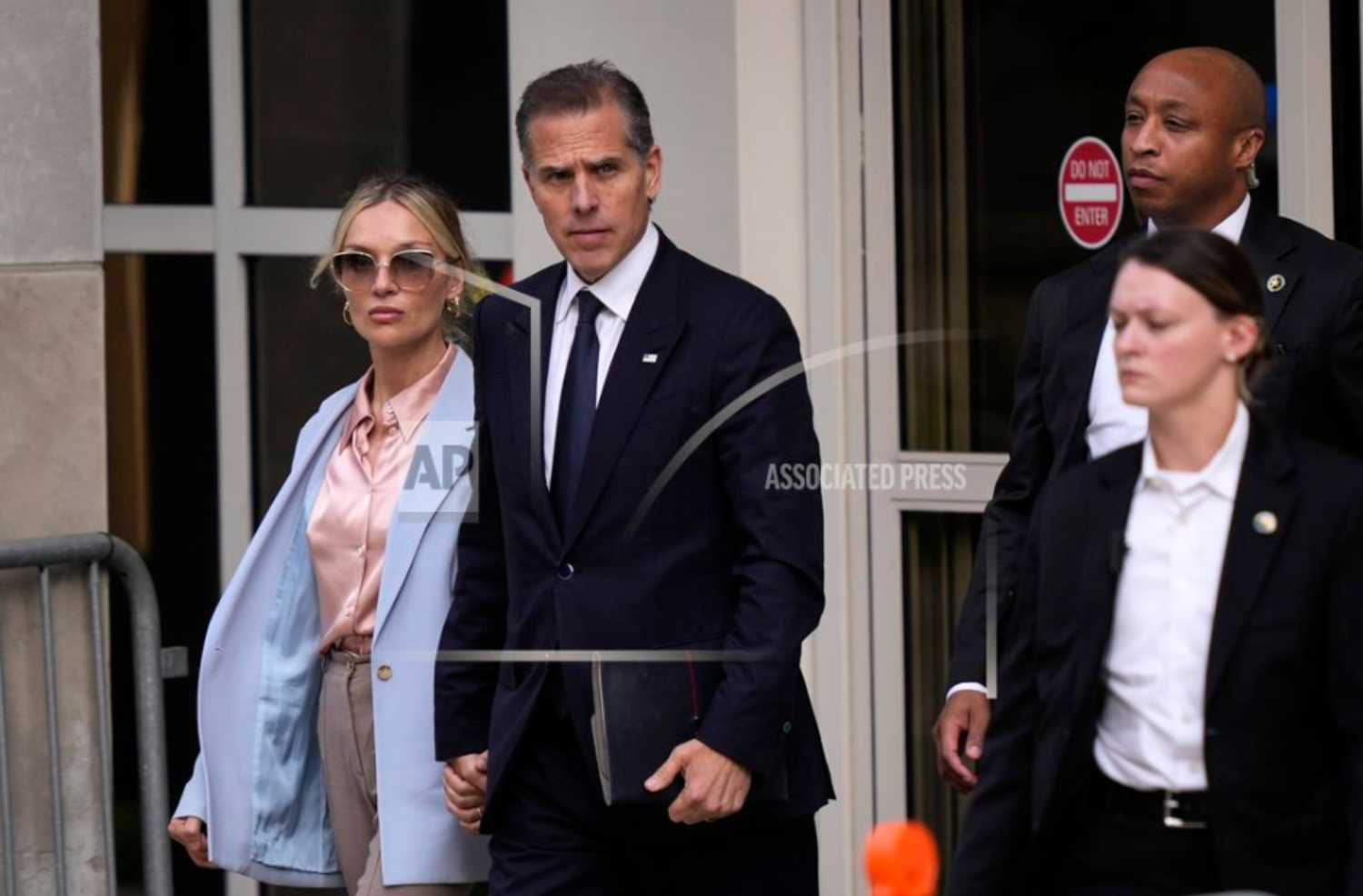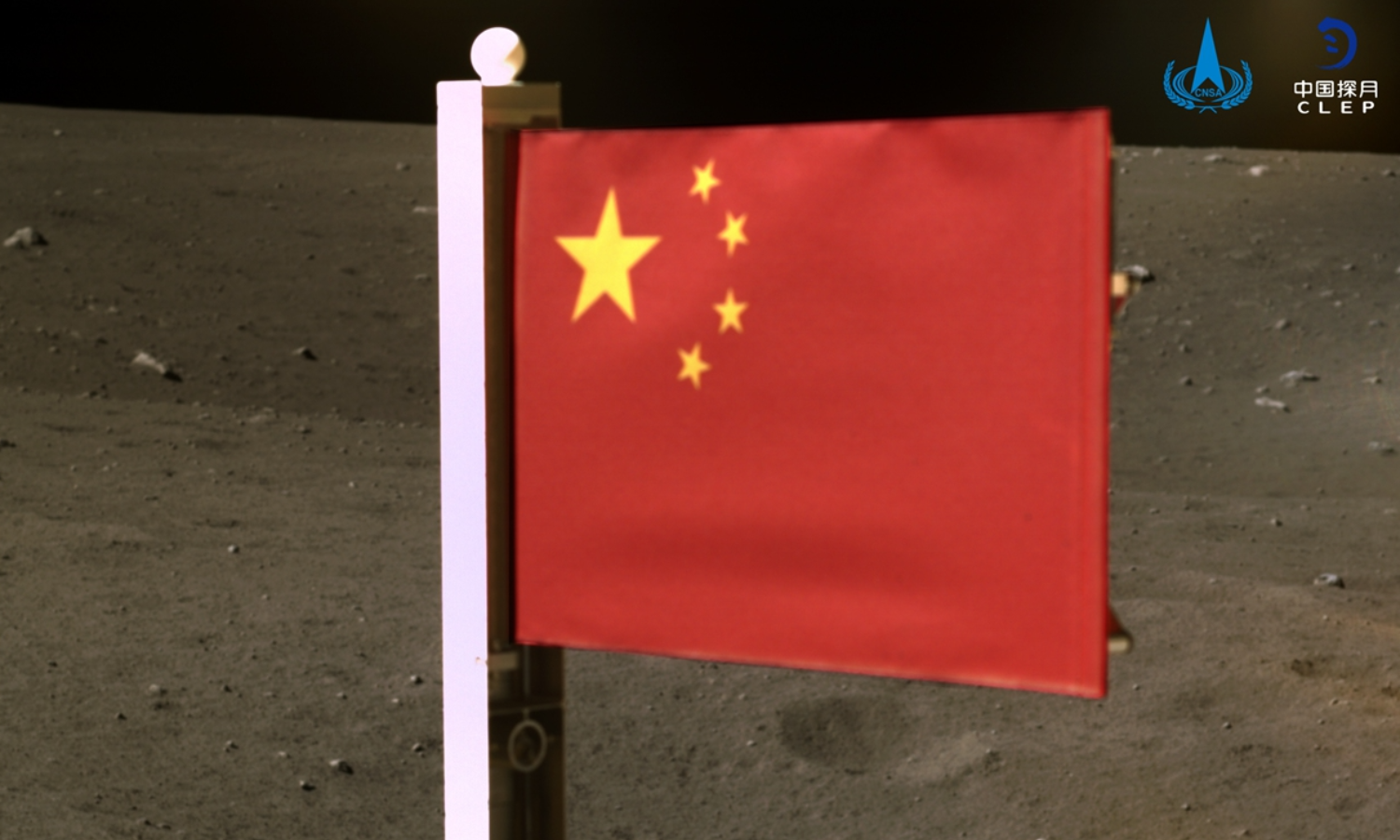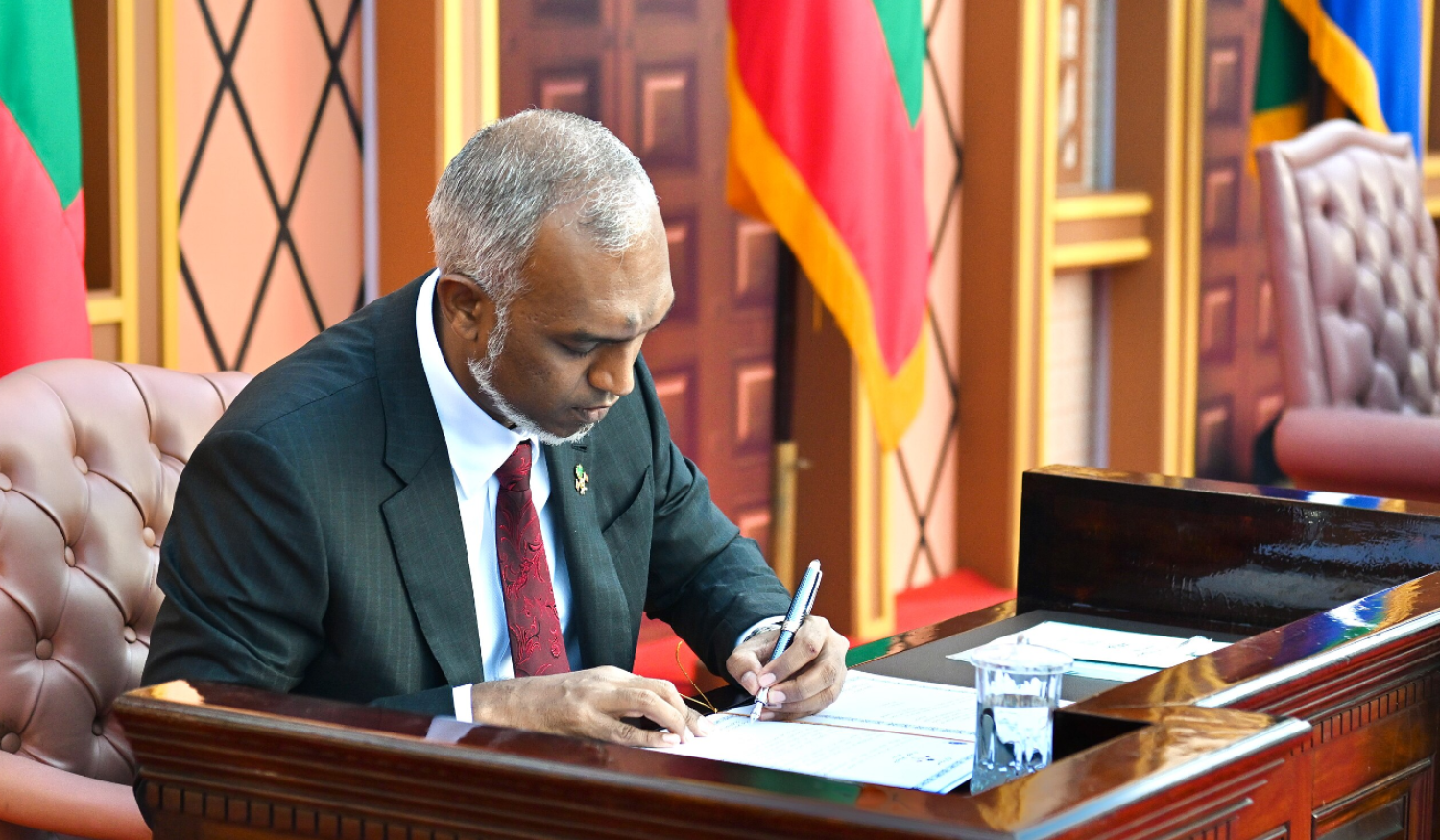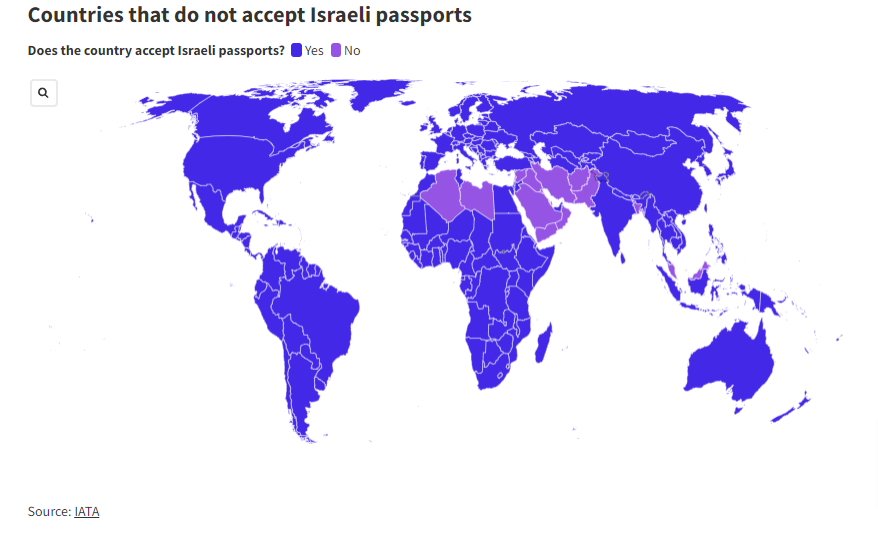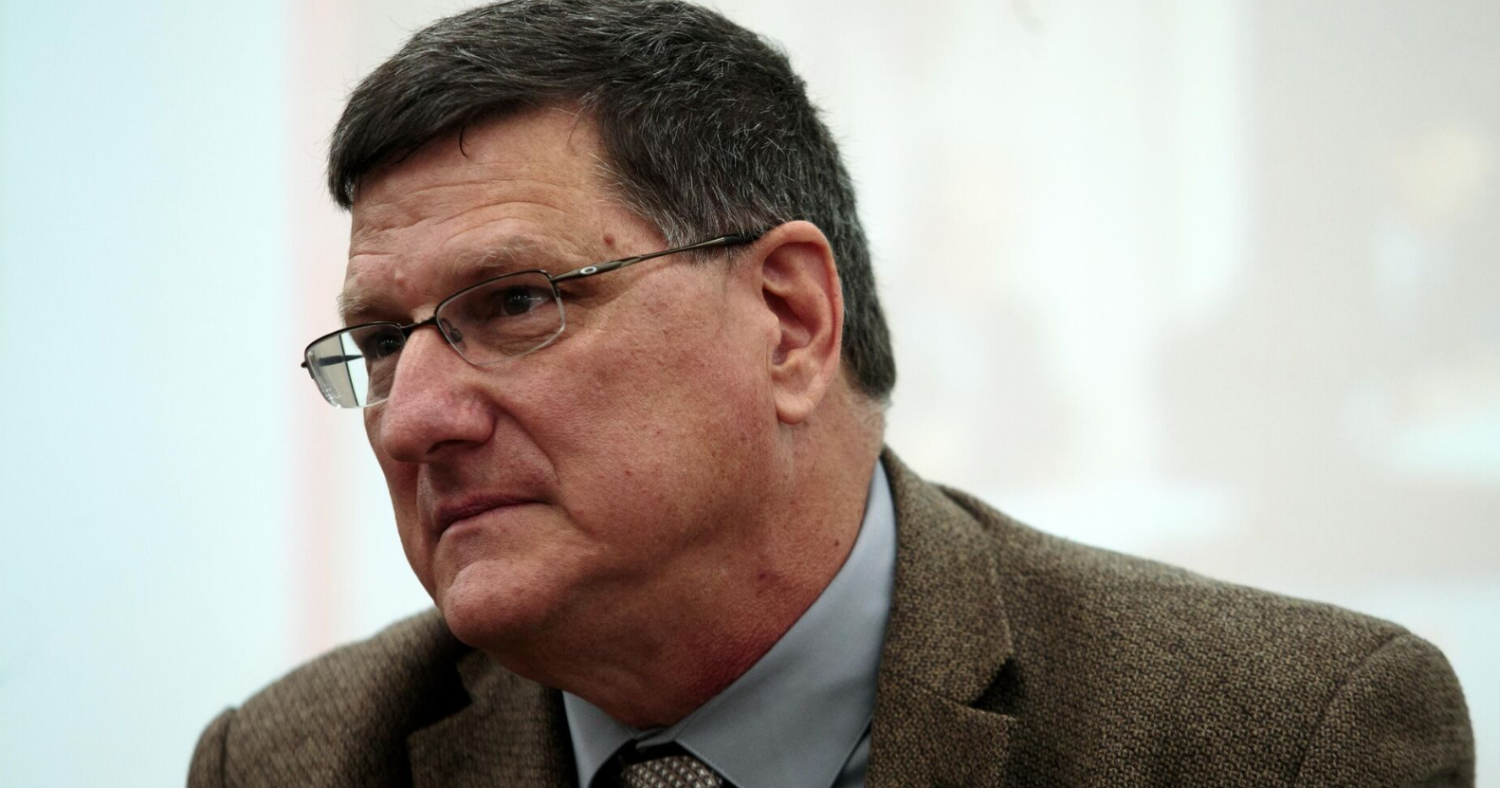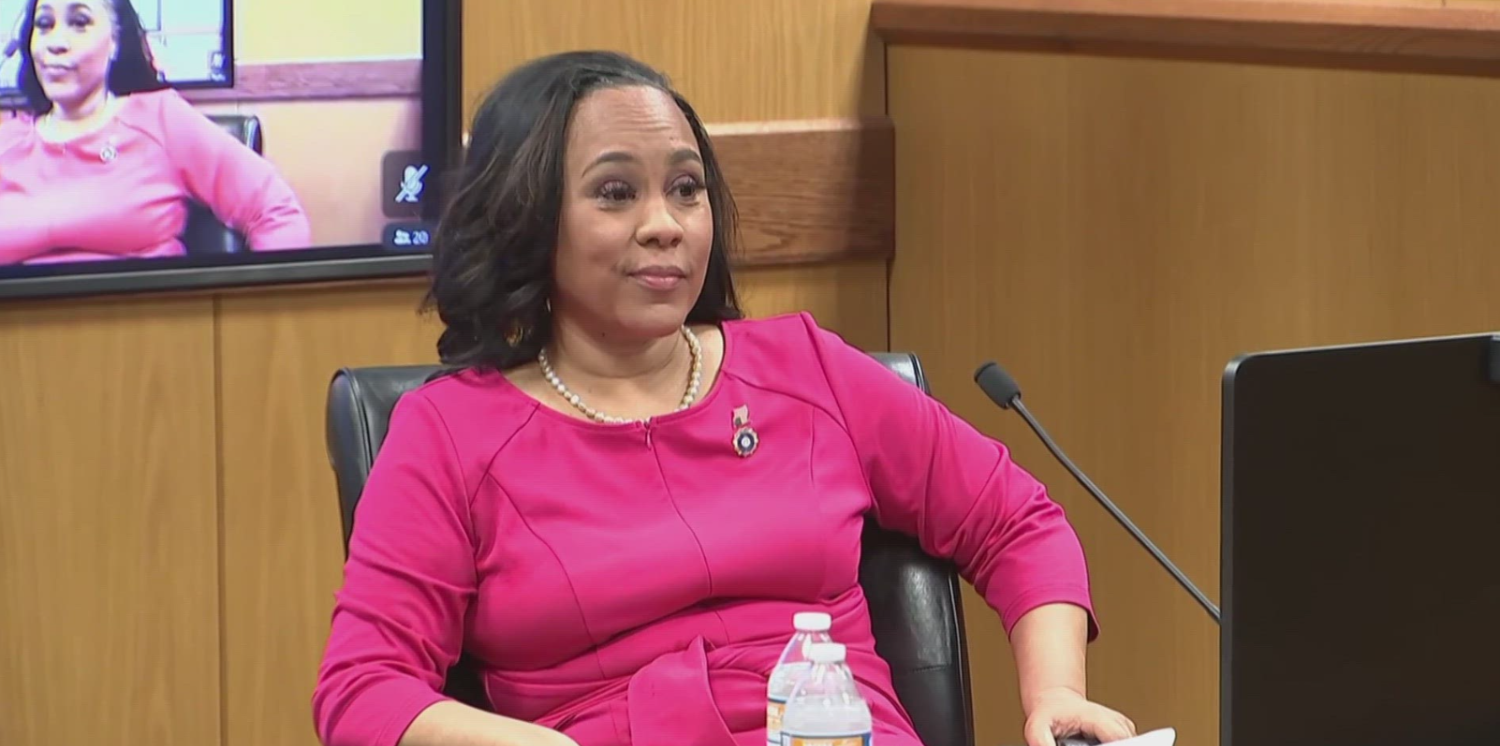-
Posts
10,807 -
Joined
-
Last visited
Content Type
Events
Forums
Downloads
Quizzes
Gallery
Blogs
Everything posted by Social Media
-
Taylor Swift has received widespread acclaim for her heartfelt support of the LGBTQ+ community during a recent concert in France as part of her record-breaking Eras Tour. The pop sensation, known for her advocacy and inclusive messages, made a poignant statement celebrating Pride Month, resonating deeply with fans and garnering praise across social media. Swift’s Eras Tour, which began in March 2023, has already set records as the highest-grossing live music tour, even before reaching the halfway mark of its 152 shows worldwide. Currently in the midst of the European leg, Swift performed at Groupama Stadium in Lyon, France, on June 2, where she made headlines for her uplifting message. "Happy Pride Month, Lyon," Swift declared to the audience while performing her 2019 hit "You Need to Calm Down," a song that tackles internet trolls and homophobia while expressing support for the LGBTQ+ community. This moment was captured on video and first posted to X (formerly Twitter) by user @dearpaitence, with the caption: "TAYLOR SAYING HAPPY PRIDE MONTH #LyonTSTheErasTour." The video quickly went viral, being reshared by @tswifterastour, an unofficial tour update account, and the entertainment page @PopCrave. Collectively, the video has amassed over 1.2 million views. Fans reacted emotionally to Swift’s message, with many sharing their experiences and expressing gratitude. One fan commented, "Crying, sobbing, and then there was Ro and I in that stadium with our flags [multiple crying emojis] we truly took that concert like it was a Pride parade (and it was)." Another fan shared, "If she does this in Edinburgh, I'm just gonna bawl and turn to my mum and say I like women, then she's gonna go, 'I know.'" Other comments included, "HAPPY PRIDE MONTH TO YOU TOO TAY," and "OH I LOVE HER [crying emoji and heart hands emoji]," reflecting the deep emotional connection fans have with Swift and her support for the LGBTQ+ community. The significance of Swift's message is rooted in a long history of Pride celebrations. Twenty-five years ago, President Bill Clinton declared June as Gay and Lesbian Pride Month, commemorating the 1969 Stonewall Uprising, a pivotal event in the LGBTQ+ rights movement. In 2011, President Barack Obama expanded Pride Month to include the entire LGBTQ+ community, further solidifying June as a time for celebration and reflection. Swift’s Eras Tour is a monumental production featuring 16 backup dancers, four vocalists, and a dedicated live band. The three-and-a-half-hour show spans 44 songs across 10 acts, each representing a different "era" of Swift’s illustrious career. Recently, the setlist was updated to include tracks from her 11th studio album, *The Tortured Poets Department (TTPD)*, released in April. The album shattered streaming records, becoming Spotify's most-streamed album in a single day with 300 million streams in 24 hours, and has topped the Billboard 200 album charts for five consecutive weeks. Following the European leg, which concludes in mid-August, Swift will perform in select American cities, including Miami, New Orleans, and Indianapolis, before wrapping up the tour in Canada. The final show is scheduled for December 8 in Vancouver, just days before Swift's 35th birthday on December 13. Taylor Swift's Pride Month message in Lyon is a testament to her enduring commitment to inclusivity and support for the LGBTQ+ community. As her Eras Tour continues to break records and touch lives, Swift remains a powerful advocate for love, acceptance, and the celebration of diversity. Credit: Newsweek 2024-06-08 Get our Daily Newsletter - Click HERE to subscribe
-
Former President Donald Trump has called for criminal charges against members of the January 6 House committee, which investigated the attack on the U.S. Capitol by his supporters. This demand came in response to the four-month prison sentence handed to Steve Bannon, Trump's former White House chief strategist, for defying a congressional subpoena issued by the committee. In a post on Truth Social, Trump described Bannon's sentencing as "a Total and Complete American Tragedy" and argued that the true culprits were the committee members themselves. He accused the committee of illegally deleting and destroying evidence from their investigation and urged law enforcement to indict them. Trump wrote, "The unAmerican Weaponization of our Law Enforcement has reached levels of Illegality never thought possible before. INDICT THE UNSELECT J6 COMMITTEE FOR ILLEGALLY DELETING AND DESTROYING ALL OF THEIR 'FINDINGS!' MAGA2024." The January 6 committee comprised seven Democrats and two Republicans. Five of the Democratic members are still in office: Representatives Bennie Thompson, Adam Schiff, Pete Aguilar, Zoe Lofgren, and Jamie Raskin. The committee's two Republican members, Liz Cheney and Adam Kinzinger, are no longer in Congress, with Cheney losing her reelection bid in 2022 and Kinzinger choosing not to run. Another Democratic member, Elaine Luria, also lost her reelection bid in 2022, and Stephanie Murphy did not seek reelection. Trump's allegations center around claims that the committee "deleted" all of its evidence. This accusation was fueled by remarks from Representative Barry Loudermilk, the Republican chairman of the House Administration's Subcommittee on Oversight. Loudermilk reported that some evidence from the committee's investigation was not preserved, including video recordings and transcripts of witness interviews. Despite these claims, much of the committee's work was made public through an 845-page report and televised hearings, with several witness transcripts also available to the public. In its final days, the January 6 committee made criminal referrals to the Justice Department, recommending that Trump face charges for his actions related to the Capitol attack. The DOJ later indicted Trump for attempting to unlawfully remain in office after his defeat in the 2020 presidential election. Responding to Trump's claims, Representative Zoe Lofgren dismissed the allegations as "garbage" during an appearance on CNN. She explained that Bannon was held in contempt for not honoring a subpoena, a straightforward legal issue. Lofgren emphasized Trump's habitual disregard for the truth. Adam Kinzinger also countered Trump's claims by sharing a link to the committee's final report on social media, highlighting the public availability of the evidence. Steve Bannon, after being convicted in July 2022, filed an appeal that delayed his prison sentence. However, the U.S. Circuit Court of Appeals for the District of Columbia recently upheld his conviction, and federal prosecutors asked the court to enforce his sentence. On Thursday, Federal Judge Carl Nichols, a Trump appointee, agreed with the prosecutors, marking another legal setback for Bannon. Trump's latest outburst reflects his ongoing battle with the outcomes of the January 6 investigation and his efforts to shift blame away from himself and his close associates. The controversy surrounding the Capitol attack continues to be a deeply polarizing issue in American politics, influencing both legal proceedings and public discourse. Credit: Newsweek 2024-06-08 Get our Daily Newsletter - Click HERE to subscribe
-
Israeli Prime Minister Benjamin Netanyahu is set to address a joint meeting of Congress on July 24, as announced by top Republican leaders on Thursday night. This announcement follows weeks of speculation regarding whether the Israeli leader would be invited to speak amid Israel's ongoing conflict with Hamas. Netanyahu accepted the invitation on Saturday. Speaker Mike Johnson (R-La.) and Senate Minority Leader Mitch McConnell (R-Ky.) released a statement emphasizing the importance of this bipartisan, bicameral meeting. They stated, "The meeting symbolizes the U.S. and Israel’s enduring relationship and will offer Prime Minister Netanyahu the opportunity to share the Israeli government’s vision for defending their democracy, combatting terror, and establishing just and lasting peace in the region." Notably, the announcement did not include Senate Majority Leader Chuck Schumer (D-N.Y.) and House Minority Leader Hakeem Jeffries (D-N.Y.), both of whom had signed the invitation letter. This omission is significant as progressive Democrats have expressed strong opposition to Netanyahu's address, with some pledging to boycott the event. Schumer, while supporting the invitation, has been openly critical of Netanyahu, calling for new elections in Israel and stating that the prime minister had "lost his way." Despite his disagreements with Netanyahu, Schumer reaffirmed his support for the U.S.-Israel relationship, stating, "I have clear and profound disagreements with the Prime Minister, which I have voiced both privately and publicly and will continue to do so. But because America’s relationship with Israel is ironclad and transcends one person or prime minister I joined the request for him to speak." This will be Netanyahu's fourth address to a joint meeting of Congress, following speeches in 2015, 2011, and 1996. His upcoming address is expected to provoke significant controversy, especially among liberal Democrats who are outraged over the increasing number of humanitarian casualties in Gaza. Senator Bernie Sanders (I-Vt.) has been particularly vocal, labeling Netanyahu as a "war criminal" and declaring he will not attend the address. The Israel-Hamas conflict remains a divisive issue within the Democratic caucus, with pro-Palestinian progressives clashing with pro-Israel members. This division was recently highlighted when the International Criminal Court (ICC) issued arrest warrants for Netanyahu, the Israeli defense minister, and Hamas leaders, accusing them of war crimes. Pro-Israel Democrats criticized the ICC, while pro-Palestinian liberals supported the court's decisions. It is important to note that the U.S. does not recognize the ICC and considers its jurisdiction to be non-applicable to Americans. The idea of inviting Netanyahu to speak was first proposed by Johnson in March, but the formal invitation process was delayed as Schumer hesitated to sign the letter. Now confirmed, Netanyahu's address is set to further highlight the complex and often contentious relationship between the U.S. and Israel, and the varied perspectives within American politics on this issue. Credit: The Hill 2024-06-08 Get our Daily Newsletter - Click HERE to subscribe
-

Israel is at War - General discussion (pt3)
Social Media replied to Social Media's topic in The War in Israel
Post making numerous unsubstaniated claims has been removed along with a reply. Posts from same poster subsequently comments on moderation have also been removed. "Any alleged factual claims must be supported by a valid link to an approved credible source." Lets keep this on topic please. -
In an exclusive interview with ABC News anchor David Muir, President Joe Biden reaffirmed that U.S. weapons would not be utilized to strike Moscow or the Kremlin, despite his recent authorization for Ukraine to use them within Russian territory. The interview took place at the Normandy American Cemetery during the 80th anniversary of D-Day, underscoring the solemnity and historical significance of the moment. When Muir inquired if U.S.-made weapons had already been used in Russia, particularly near the Russian-occupied Kharkiv region, Biden did not provide a direct answer. However, he emphasized that these weapons would not be used to target Russia's capital or its government. "They're authorized to be used in proximity to the border when they're being used on the other side of the border to attack specific targets in Ukraine," Biden explained. "We're not authorizing strikes 200 miles into Russia and we're not authorizing strikes on Moscow, on the Kremlin." Muir also questioned Biden about Russian President Vladimir Putin's recent comments, which suggested that supplying high-precision weapons to Ukraine for strikes on Russian territory constituted direct participation in the war. When asked if these remarks were concerning, Biden responded, "I've known him for over 40 years. He's concerned me for 40 years. He's not a decent man. He's a dictator, and he's struggling to make sure he holds his country together while still keeping this assault going." Biden's clear stance was that the U.S. is not providing Ukraine with weapons to attack major Russian targets but rather to defend against the significant fire from conventional Russian weapons. "We're not talking about giving them weapons to strike Moscow, to strike the Kremlin, to strike against -- just across the border, where they're receiving significant fire from conventional weapons used by the Russians to go into Ukraine to kill Ukrainians," he stated. This interview coincided with Biden's visit to France to commemorate the Allied forces' D-Day landings in 1944, a pivotal event that contributed to the downfall of Nazi Germany and the conclusion of World War II. The day held profound historical resonance, as Biden participated in ceremonies remembering the sacrifices made for freedom and democracy. Later in the day, Biden was scheduled to meet with Ukrainian President Volodymyr Zelenskyy to discuss the ongoing war effort. This meeting was anticipated to address further strategic support and the complexities of the conflict. Credit: ABC News 2024-06-07 Get our Daily Newsletter - Click HERE to subscribe
-

Israel is at War - General discussion (pt3)
Social Media replied to Social Media's topic in The War in Israel
Yet again another reminder. The full text on speech of the proposal is also contained here. The reason dedicated topics are made it to keep relevant informations in easy accessible threads. -
On the 80th anniversary of the D-Day landings, surviving veterans gathered in Normandy to pay tribute to the fallen and receive the gratitude of the world. This momentous event, likely the last major anniversary for many of these brave individuals, was marked by emotional ceremonies and the presence of world leaders who acknowledged the immense sacrifices made for the sake of freedom. As the diminishing number of D-Day heroes assembled, they were met with heartfelt expressions of appreciation from global leaders. "Our gratitude is unfailing, and our admiration eternal," declared the King, encapsulating the day's sentiment. His words emphasized the importance of passing on the baton of remembrance to future generations. The commemorations were filled with moving personal testimonies from the veterans themselves. At the British Normandy Memorial service, 99-year-old Joe Mines, who landed on Ver-sur-Mer at the age of 19 and had not returned since, shared his harrowing experiences. "Why would I come back?" he asked, detailing the horrors he witnessed and his desire to pay respects to those who did not survive. His words, read by actor Martin Freeman, brought tears to many, including the King and Queen. Arthur Oborne, 100, recalled how a friend saved his life after he was shot in the lung three days after arriving on Gold Beach. That friend, Walter Gummerson, was killed the next day. "I wish I could tell him that I have never taken his sacrifice for granted," said Mr. Oborne. "So Gummy, thank you, my old friend." The first D-Day anniversary to be held at the British Normandy Memorial saw veterans, some in wheelchairs, others with family or carers, honored for their sacrifices. The King and Queen, along with President and Madame. Macron, attended the service, which was punctuated by moments of profound silence and the sound of birdsong. In his speech, the King reflected on the resolve and determination of the wartime generation. He quoted George Batts, a veteran who proposed the British Normandy Memorial: "We left a lot of mates behind, and now I know they will never be forgotten." Across the coastline, separate ceremonies honored the contributions of UK, US, and Canadian forces. President Joe Biden, Prime Minister Rishi Sunak, and other world leaders paid their respects. Biden, born in 1942, was visibly moved, wiping away tears as footage from 1944 played. The day's events culminated with a tribute to the enduring legacy of the D-Day veterans. The King, undergoing cancer treatment, cut his day shorter but made sure to honor the veterans personally. Wearing his Field Marshal No 4 Tropical Service dress uniform, he and the Queen opened the new Sir Winston Churchill Centre for Education and Learning. As the day ended, veterans received standing ovations, and the celebrations continued into the night. The words of gratitude, the shared memories, and the solemn tributes ensured that the sacrifices of these heroes would never be forgotten. As one son embraced his veteran father, the importance of remembering and honoring these sacrifices was clear to all present. The shouts of "hip hip hooray" echoed through Ver-sur-Mer, a fitting tribute to the men who had given so much for the freedom of future generations. Credit: Daily Telegraph 2024-06-07 Get our Daily Newsletter - Click HERE to subscribe
-
The BBC is under fire for continuing to employ cricket commentator Qasim Sheikh despite accusations of sharing antisemitic content on social media. Sheikh joined the Test Match Special team for the Scotland versus England T20 game, prompting an open letter from more than 100 Jewish figures in the media and entertainment industry. The letter accuses the broadcaster of a "monumental double standard" on racism. Addressed to BBC Director-General Tim Davie and Chief Content Officer Charlotte Moore, the letter expressed disbelief at Sheikh's continued presence on the commentary team. Prominent figures like Neil Blair, agent to J.K. Rowling; Danny Cohen, former BBC director of television; Claudia Rosencrantz, former ITV entertainment boss; and Anita Land, talent agent and sister to Lord Grade, were among the signatories. They highlighted Sheikh's social media posts that depicted Prime Minister Rishi Sunak and other Western leaders with Hitler moustaches, labeling them the "Kids Killer Union." Following the October 7 Hamas attack on Israel, Sheikh also posted that Palestinians have "a right to defend themselves." The letter stated, "Qasim Sheikh was a key part of the Test Match Special team on Tuesday 4th June for the Scotland v England T20 game, despite the fact the BBC knew he has in the past few months on social media posted (and re-posted) rhetoric that is both racist and wholly undermines civility in public discourse." It continued, "One tweet on 'X' likens our Prime Minister alongside other prominent Western leaders including Netanyahu to Hitler, denouncing them collectively as the 'Kids Killer Union'. Significantly, following the brutal massacre of infants, children, men, women and the elderly on October 7th in Israel by Hamas terrorists, another tweet by Mr Sheikh claims that the terrorists were justified in their indiscriminate mass rape and slaughter in order 'to defend themselves'." The BBC's decision to retain Sheikh stands in stark contrast to its handling of former cricket commentator Michael Vaughan, who was dropped from all coverage in 2021 following accusations of racism. Vaughan was accused by former Yorkshire player Azeem Rafiq of saying, "There are too many of you lot, we need to have a word about that," to four Asian players in 2009. Despite Vaughan's categorical denial and subsequent clearance in March 2023, the BBC had suspended him from all cricket commentary. The letter remarked, "When in 2021 Michael Vaughan was accused of racist comments (made in 2009, which he categorically denied) he was promptly dropped from the BBC commentary team. A mere accusation was enough for him to be suspended from all cricket commentary with the BBC statement: ‘While he is involved in a significant story in cricket, for editorial reasons we do not believe that it would be appropriate for Michael Vaughan to have a role in our Ashes team or wider coverage of the sport at the moment'." The signatories of the letter criticized the BBC for demonstrating a "total absence of courage, morality and understanding" regarding antisemitism. They questioned why Sheikh's actions were not deemed significant enough to merit repercussions, especially considering the impact on Jewish members of the BBC staff. "Yet again, the BBC appears entirely deaf to news of its contributors’ racism against Jews. Invoking images of Hitler (specifically) to portray Israel, the world’s only Jewish state, and its allies is Holocaust inversion and antisemitic by every definition," the letter stated. Sheikh has since apologized for any offense caused by his posts. "If my messages have caused people to think I am supporting the attacks of Oct 7, then that would not sit well with me, and I apologize for any offense this has caused. I would never seek to support any loss of innocent lives. That was not my intention," he said. He further clarified his stance, saying, "I have been clear from the outset that the killing of innocent lives is wrong. There is no way I would support what happened on Oct 7 as acceptable, it was morally reprehensible. As is the ongoing situation in Gaza where many innocent lives continue to be lost – many of which are women and children. I will continue to call for a stop on the killing of innocent civilians, my message is clear for a ceasefire and a stop to all conflict." In a subsequent statement issued on Wednesday, Sheikh reiterated his apology, saying, "I have been sent the recent letter, and as a result want to reiterate my apology for any offense my past messages caused. I reiterate what happened on October the 7th was morally reprehensible. I have removed the social media posts and want to reiterate that my intention was and is to raise the plight of the death of all innocent civilians. My position is clearly outlined in my statement of yesterday. I am against all forms of racism and discrimination and I believe in the need for peace in Gaza." Despite the ongoing controversy, the BBC has yet to provide an official comment. Meanwhile, Michael Vaughan has returned to his role in BBC commentary after being cleared of the accusations against him. This situation continues to spark debate and criticism regarding the BBC's handling of issues related to racism and antisemitism within its ranks. The signatories concluded their letter by stating, "We are despairing at the total absence of courage, morality and understanding that BBC leadership repeatedly demonstrate in relation to Jews time and again. We can now add the case of Qasim Sheikh to the ever-growing canon that the BBC must answer for." Credit: Daily Telegraph 2024-06-07 Get our Daily Newsletter - Click HERE to subscribe
-
The recent ruling by the International Court of Justice (ICJ) ordering Israel to halt its military operation in Rafah has intensified the terrorist-sponsored international pressure campaign against Israel. This directive, however, fails to consider several critical factors that make Israel's operation not only acceptable but necessary. Sophisticated readers understand the military operation in Rafah within the context of the ongoing conflict between Israel and the violent Jihadi group Hamas, whose founding charter is committed to Israel's destruction. On October 7, Hamas launched a devastating attack on Israel, killing more than 1,200 people, many of whom were raped and mutilated, and taking nearly 250 others hostage. This brutal assault necessitated a decisive response from Israel to protect its citizens and prevent further atrocities, as Hamas has vowed to attempt to repeat the attacks again and again. Rafah is the last major stronghold of Hamas in the Gaza Strip. The city's strategic significance cannot be overstated, as it serves as a critical hub for Hamas's operations, including smuggling weapons and supplies through tunnels under the Philadelphi Corridor, which connects Gaza to Egypt. Policing Rafah is essential for Israel to dismantle Hamas's military infrastructure and sever its supply lines. Many of the innocent individuals who were abducted in southern Israel on October 7 are believed to be still held captive in Rafah. On February 11, Israel successfully conducted a daring mission in Rafah, rescuing and returning home alive two hostages, Fernando Simon Marman, 60, and Luis Har, 70, both of whom hold dual Argentinian-Israeli citizenship. Freed hostages have reported experiencing sexual assault and rape during their captivity, and UN officials have confirmed there is "clear and convincing" evidence of rape. During World War II, Allied forces missed the opportunity to save Jewish captives by not bombing the trains to Auschwitz. Now that the Jewish people have their own state and army, we cannot stand idly by and allow our people to continue suffering rape and torture in captivity. Hamas maintains its last four full-strength battalions of combatants in the strategic city of Rafah. Additionally, Hamas continues to strike into Israeli territory from its Gaza stronghold. Rocket attacks on Israel from Hamas bases in Gaza continue, with three Israel Defense Forces soldiers killed by a Hamas rocket attack on May 5. The operation in Rafah is a necessary measure to dismantle Hamas's terror infrastructure and secure the release of hostages. Prime Minister Benjamin Netanyahu has been clear about the dual objectives of the operation: returning hostages and eliminating Hamas. Israel has made significant efforts to address humanitarian concerns. The IDF's gradual and cautious approach aims to minimize civilian suffering and casualties. The IDF has established field hospitals, provided essential supplies, and created safe zones for displaced persons. Israel has delivered tens of thousands of trucks with hundreds of thousands of tons of aid packages and, ahead of the fighting, helped relocate an incredible 1 million civilians from Rafah. These measures demonstrate Israel's commitment to minimizing civilian casualties and alleviating the humanitarian crisis. Furthermore, IDF control over the Rafah border crossing with Egypt allows for better regulation of humanitarian aid entering Gaza, ensuring that it reaches those in need rather than being stolen by Hamas and diverted for violent purposes. Holding Rafah is also crucial for long-term security and regional stability. Hamas's ability to smuggle weapons, contraband, and even human beings through the Philadelphi Corridor poses a significant threat not only to Israel but to the broader region. Eliminating these smuggling routes is essential to prevent the rearmament of Hamas and ensure lasting peace. There is a troubling tendency in international media and some political circles to equate the actions of the IDF with those of Hamas. This false equivalence distorts the reality on the ground and undermines the legitimate security concerns of both Israel and the ordinary Palestinians who suffer under Hamas's rule. It is crucial to differentiate between a sovereign nation's right to defend its citizens and the actions of a terrorist organization that targets civilians. While there is considerable pressure on Israel to cease its operations, it is also an opportunity for Israel to demonstrate its commitment to its security and its willingness to address the root causes of the conflict. Hamas's governance in Gaza has been marked by widespread human rights abuses, including the enforcement of restrictive societal controls, indoctrination of children, and persecution of minorities. By exacerbating the suffering of the civilian population and weaponizing and indoctrinating their people for war, they have ensured that conflict will continue until Israel or its partners oversee a period of robust de-Hamasification efforts in Gaza. Full-scale operations in Rafah will undoubtedly bring several challenges. Urban warfare in densely populated areas poses significant risks to both military personnel and civilians. The IDF will need to conduct operations with its customary precision and care to avoid unnecessary casualties. The use of intelligence and technology will be crucial in identifying and targeting Hamas operatives and infrastructure while sparing civilians. Fighting in Rafah could take months to conclude, as with the IDF's Operation Defensive Shield in the West Bank in 2002, which initiated a process that took years to dismantle terrorist infrastructure. The IDF must prepare for a prolonged campaign with sustained international scrutiny and pressure. The ICJ's ruling calling for an immediate halt to the operation fails to recognize the complexities and necessities of the conflict. Halting the operation prematurely would only embolden Hamas, allowing it to regroup and continue its attacks on Israeli civilians. The international community must understand the context of Israel's actions and recognize the legitimacy of its efforts to defend its citizens and dismantle a terrorist infrastructure that poses a significant threat to regional stability. Rather than condemning Israel, the focus should be on holding Hamas accountable for its actions and supporting efforts to achieve a lasting peace that addresses the security concerns of both Israelis and Palestinians. Only by confronting the true provocateurs of the conflict can we hope to pave the way for a peaceful resolution and a better future for all those affected by the brutal violence of Hamas and its jihadi allies. Related Topics: Can Israel Defeat Hamas Without a Ground Invasion in Rafah? An Expert's Perspective Credit: Newsweek 2024-06-07 Get our Daily Newsletter - Click HERE to subscribe
-
Global temperatures have consistently exceeded the crucial 1.5°C warming threshold over the past 12 months, signaling a troubling trend in the battle against climate change. According to new data from Copernicus, the EU's climate monitoring service, the global average temperatures from June 2023 to May 2024 were 1.63°C above the pre-industrial baseline (1850-1900). This short-term breach of the 1.5°C threshold is not equivalent to a permanent state of global warming above this critical level, which international climate agreements strive to avoid. However, it serves as a stark reminder of the persistent rise in temperatures driven by human-induced carbon emissions and underscores the urgent need for sustained efforts to mitigate these emissions. "It is shocking but not surprising that we have reached this 12-month streak," said Carlo Buontempo, director of the Copernicus Climate Change Service. "While this sequence of record-breaking months will eventually be interrupted, the overall signature of climate change remains and there is no sign in sight of a change in such a trend." The World Meteorological Organization (WMO) has also sounded the alarm, predicting that at least one of the next five calendar years will exceed 1.5°C of warming. With greenhouse gas emissions returning to pre-COVID levels, the WMO anticipates that average global surface temperatures from 2024 to 2028 will be between 1.1°C and 1.9°C warmer than the 1850-1900 average. They estimate there is an 86% chance that at least one of these years will surpass 2023, the current warmest year on record globally. "We are playing Russian roulette with our planet," warned UN Secretary-General Antonio Guterres. "The battle to limit temperature rise to 1.5 degrees will be won or lost in the 2020s - under the watch of leaders today." These warnings come as global leaders convene in Bonn, Germany, to assess progress on international climate negotiations ahead of the COP 29 global climate summit in Baku, Azerbaijan, in November. The recent data shows that May 2024 was the hottest May on record, with global average temperatures 0.65°C higher than the 1991-2020 average. It also marked the 12th consecutive month of record-breaking global temperatures. Despite the slowdown in the rise of global carbon emissions in recent years, they have not yet peaked. Agreements reached at COP 28 in Dubai to triple the amount of renewable energy generated worldwide by 2030 have yet to be fully realized. The International Energy Agency (IEA) reported on Monday that most countries are not on track to meet the 2030 target. Current plans for renewable energy deployment fall about one-third short, with an estimated 8,000 GW of renewable energy expected to be deployed globally by the end of the decade. Notably, China alone is projected to contribute 3,180 GW through wind and solar projects. This situation underscores the pressing need for enhanced international cooperation and stronger policy measures to accelerate the transition to renewable energy and curb greenhouse gas emissions. The next few years are critical in determining whether the global community can limit temperature rise and avert the most catastrophic impacts of climate change. Credit: Sky News 2024-06-07 Get our Daily Newsletter - Click HERE to subscribe
-
A 26-year-old suspected terrorist, believed to be of Ukrainian-Russian origin, triggered an improvised bomb in a Paris airport hotel using the notorious "Mother of Satan" chemicals favored by Islamic State (IS) bombers. The explosion occurred at the B&B Hotel within the Charles de Gaulle Airport perimeter, the largest airport in France. The suspect, who has not been named, suffered severe burns to his face and arms after igniting Triacetone Triperoxide (TATP) in his £80-per-night room. Despite his injuries, he was able to communicate with officers from France's domestic security service, the General Directorate of Internal Security (DGSI). Details of the incident emerged as U.S. President Joe Biden arrived in Paris for the D-Day 80th anniversary commemorations, joining other world leaders including French President Emmanuel Macron and Ukrainian President Volodymyr Zelensky. The Incident and Its Context The TATP chemicals found at the hotel are infamous for their use in previous high-profile terrorist attacks. IS suicide bombers employed them during the November 2015 Paris attacks, which killed 130 people, and the 2017 Manchester Arena bombing, which resulted in 22 deaths and over 1,000 injuries. Known as "Mother of Satan" due to its volatility, TATP has become a preferred explosive for terrorist groups like IS and Al-Qaeda. French authorities, wary of potential Russian interference and terror attacks leading up to the 2024 Paris Olympics, were swift to respond. Initial findings revealed products and materials intended for explosive devices at the scene. "One of the improvised explosive devices exploded. The hotel had to be evacuated," a source from France's national anti-terrorist prosecutor's office told BFMTV. The suspect, who hails from the Donbas region of Ukraine and speaks Russian, was found with bomb-making equipment and multiple passports in his luggage. He claimed that he was constructing homemade batteries for mobile phones when one exploded. This explanation did not deter anti-terrorism prosecutors from opening a formal investigation into various alleged offenses, including participation in a terrorist criminal association and possession of incendiary or explosive substances. The Broader Implications The incident underscores growing concerns about Russian agents plotting atrocities in Europe. Earlier, Polish Prime Minister Donald Tusk warned of Moscow-run agents planning acts of sabotage across the continent. In May, Tusk announced the arrest of nine individuals accused of preparing sabotage in EU member states in coordination with Russian intelligence. These detainees, hailing from Belarus, Poland, and Ukraine, were implicated in beatings, arson, and attempted arson, all allegedly conducted on behalf of Russian services. This Paris incident adds to the mounting evidence of Russian involvement in violent acts across Europe. Multiple European intelligence agencies have alerted their governments about Russia's plans for such activities. Reactions and Security Measures The explosion at the B&B Hotel prompted an immediate evacuation and closure of the establishment. The 2-star hotel, frequently used by British travelers, boasts 226 air-conditioned, non-smoking rooms and offers 24-hour check-in service. Its proximity to the airport makes it a convenient choice for travelers, but the recent events have cast a shadow over its reputation. The suspect, who arrived in France "very recently" and booked the hotel room under his own name, is now recovering from his wounds and cooperating with officials. French anti-terrorism prosecutors are delving deeper into the case, exploring charges related to terrorist activities and possession of explosive materials. A Call for Vigilance The incident highlights the persistent threat of terrorism and the need for heightened security measures, especially in the run-up to major international events like the Paris Olympics. The use of TATP, a hallmark of IS and Al-Qaeda bombings, signals a dangerous trend that security agencies must address. UN Secretary-General António Guterres has repeatedly warned that the fight against terrorism and the protection of civilians are paramount in maintaining global security. The Paris hotel explosion serves as a stark reminder of these ongoing challenges and the importance of international cooperation in countering terrorism. As the investigation unfolds, the focus will remain on preventing future attacks and ensuring the safety of citizens and visitors alike. The global community watches closely as French authorities work to uncover the full extent of the plot and its connections to broader terrorist activities. Credit: Daily Telegraph 2024-06-07 Get our Daily Newsletter - Click HERE to subscribe
-
In a stark warning, Russian President Vladimir Putin has suggested that Moscow might supply weapons to countries targeting Western facilities, a move he claimed would be in retaliation for the West's delivery of long-range weapons to Ukraine. Speaking to foreign journalists at the annual St. Petersburg International Economic Forum, Putin addressed the escalating conflict and the involvement of Western powers in arming Ukraine. Putin criticized Western countries, particularly the United States and Germany, for permitting Ukraine to strike targets inside Russia. He emphasized the potential repercussions of these actions, stating that they could lead to “very serious problems.” "If someone thinks it is possible to supply such weapons to a war zone to attack our territory and create problems for us, why don't we have the right to supply weapons of the same class to regions of the world where there will be strikes on sensitive facilities of those countries?" Putin said. "That is, the response can be asymmetric. We will think about it." Although Putin did not specify which countries might receive Russian weapons, his comments clearly conveyed a threat to retaliate against Western nations. The statement came in response to Germany's recent decision to allow Ukraine to use German-made long-range weapons to hit targets inside Russia. "When they say that there will be more missiles which will hit targets on Russian territory, this definitively destroys Russian-German relations," Putin remarked. The United States has also played a significant role in this dynamic. President Joe Biden has given Ukraine permission to use American-supplied weapons to strike targets in Russia, but with the stipulation that they be used only near the Kharkiv region. The White House has explicitly restricted Ukraine from using long-range ATACMS missiles on Russian soil. Despite these limitations, Ukraine has recently used US weapons to conduct strikes inside Russia, as confirmed by a US senator and a Western official to the Associated Press. The conflict around Kharkiv has intensified, with fierce fighting reported in the north-east of the city, close to Ukraine's northern border. Kharkiv, Ukraine's second-largest city, lies just 30 kilometers (18 miles) from the border, making it a critical area in the ongoing war. In response to the situation, UK Foreign Secretary Lord Cameron stated that it is up to Ukraine to decide how to use British weapons, affirming Ukraine's right to strike targets on Russian territory. This stance underscores the broader Western support for Ukraine’s defense strategy, despite the potential for escalating tensions with Russia. Amid these developments, allegations have emerged regarding the involvement of other nations in the conflict. Ukraine has accused North Korea of supplying missiles being used within its territory, while Western intelligence agencies have reported that Russia is utilizing Iranian-made drones. These accusations highlight the complex web of international involvement in the war, which began with Russia's full-scale invasion of Ukraine in February 2022. During his speech at the forum, Putin also addressed the possibility of nuclear escalation, challenging the Western assumption that Russia would never resort to using nuclear weapons. "For some reason, the West believes that Russia will never use it," Putin said when asked by Reuters about the risk of nuclear escalation over Ukraine. "We have a nuclear doctrine, look what it says. If someone's actions threaten our sovereignty and territorial integrity, we consider it possible for us to use all means at our disposal. This should not be taken lightly, superficially." Putin dismissed the notion that Russia has plans to attack NATO territory, calling such ideas "complete nonsense." He criticized the West for perceiving Russia as a threat, arguing that this mindset is counterproductive. "You should not make Russia out to be the enemy. You're only hurting yourself with this, you know?" Putin said. "They thought that Russia wanted to attack NATO. Have you gone completely crazy? That is as thick as this table. Who came up with this? It is just complete rubbish, you know? Total nonsense." The remarks by Putin reflect the heightened tensions between Russia and the West, exacerbated by the ongoing conflict in Ukraine and the strategic decisions made by both sides. As the war continues, the potential for further escalation remains a significant concern, with global implications for security and stability. Credit: BBC 2024-06-07 Get our Daily Newsletter - Click HERE to subscribe
-
The past few years have been exceptionally challenging, marked by a series of crises that have left deep scars on the collective psyche. From the Covid-19 pandemic to the political upheaval under Trump, and the looming menace of climate change, these events have profoundly disrupted our lives, leaving a sense of unease and exhaustion that permeates every aspect of our existence. This widespread psychic devastation is perhaps the most significant and least acknowledged truth of our current reality, both in the United States and beyond. The Covid-19 pandemic alone was a catastrophic event that reshaped our world. It claimed millions of lives, upended economies, and forced us into prolonged isolation. Yet, when the fourth anniversary of the global coronavirus pandemic arrived, it was met with surprising silence. The trauma of Covid is unique in that while it dominated our lives, there seems to be a collective desire to forget and move on, despite the fact that the virus still lingers, continuing to cause illness and death. The pandemic’s impact varied widely among individuals, depending on factors such as age, financial situation, and living conditions. For some, it meant the loss of loved ones or the threat of losing their lives as frontline workers. For others, it led to economic hardship, isolation, and a disruption of everyday social interactions. Teachers and professors frequently report that their students have not fully recovered from the abrupt shift to online learning, which often resulted in inadequate education and excessive screen time. Overlaying the pandemic was the turbulent political landscape shaped by Trumpism. The four years of Trump’s presidency, followed by nearly four more years of its lingering influence, exacerbated the nation's collective stress. The administration's divisive rhetoric and actions, often marked by misinformation and blatant disregard for norms, have left many feeling bewildered and disoriented. The sense that the most powerful individuals can act with impunity has eroded trust in institutions and undermined the coherence of public discourse. The corruption and blatant disregard for the rule of law exhibited by Trump and his allies have further strained the national conscience. Instances such as Justice Samuel Alito’s symbolic support for the January 6 insurrection and Justice Clarence Thomas’s refusal to recuse himself despite clear conflicts of interest highlight a judiciary entangled in political bias. The normalization of outrageous behavior, such as Trump soliciting campaign contributions from fossil fuel executives in exchange for policy favors, underscores a troubling shift in societal standards. Amidst this political turmoil, the climate crisis looms as an ever-present threat. For those attuned to the realities of climate change, it represents a profound moral injury. The destruction of ecosystems, the extinction of species, and the pollution that kills millions annually are stark reminders of our collective failure to steward the planet. The psychological, social, and spiritual impact of witnessing such widespread environmental degradation is immense, contributing to a sense of helplessness and grief. The internet, with its pervasive influence, has also played a significant role in this era of upheaval. It has fragmented our attention, undermined traditional news media, and fostered the spread of misinformation and hate. Social media platforms, designed to be addictive, have created echo chambers where misinformation flourishes and civil discourse deteriorates. This digital landscape has contributed to an epidemic of loneliness, as virtual interactions often replace more meaningful face-to-face connections. In diagnosing these interconnected crises, it becomes clear that our political catastrophes are deeply entwined with personal and collective trauma. The public and private spheres are inextricably linked, with each exacerbating the other. The psychological toll of these events manifests in widespread fatigue, anxiety, and a pervasive sense of disorientation. However, recognizing this intertwined impact is the first step towards healing. Acknowledging the distress we’ve endured can foster empathy and solidarity. Defending facts and truth with determination is crucial in combating misinformation and restoring trust in institutions. Addressing climate change with urgency and commitment can mitigate its devastating effects. And perhaps most importantly, reconnecting with each other in meaningful ways can help alleviate the loneliness and fragmentation that have come to define our era. In this chaotic new world, kindness and solidarity are essential. Understanding that millions are grappling with similar challenges can provide a sense of shared experience and resilience. By coming together to address the root causes of our distress, we can begin to heal the wounds of the past few years and build a more compassionate and connected future. Rebecca Solnit is a Guardian US columnist. Credit: The Guardian 2024-06-07 Get our Daily Newsletter - Click HERE to subscribe
-
The United States is intensifying its efforts to prevent former "Top Gun" pilots from aiding the Chinese military, an initiative prompted by concerns over national security and legal implications. A stark warning was issued on Wednesday by the U.S. Office of the Director of National Intelligence, in collaboration with its "Five Eyes" intelligence allies—Australia, Canada, New Zealand, and the U.K. This bulletin highlights the ongoing efforts of China’s People’s Liberation Army (PLA) to recruit current and former Western fighter pilots, aiming to enhance their capabilities in aircraft carrier operations. A key challenge for the PLA has been developing a fleet of aircraft carriers and training their pilots to proficiently take off and land on these short, floating runways. This skill is crucial for projecting military power across the world’s oceans. However, the Chinese military has struggled with this aspect for decades. To overcome these difficulties, Chinese military leaders have resorted to setting up a series of shell companies, primarily operating in South Africa, to covertly recruit and compensate American former F-18 jet pilots. These shell companies often disguise their ultimate affiliation with the Chinese military, making it difficult for recruits to realize who they are ultimately working for. This clandestine approach has allowed China to gain access to advanced training methods, violating U.S. export laws in the process. Michael C. Casey, the director of the U.S. National Counterintelligence and Security Center, emphasized the gravity of the situation: “To overcome their shortcomings, China’s People’s Liberation Army has been aggressively recruiting Western military talent to train their aviators, using private firms around the globe that conceal their PLA ties and offer recruits exorbitant salaries.” This recruitment strategy has significantly bolstered the skills of Chinese fighter pilots and provided the PLA with valuable insights into Western air tactics, techniques, and procedures. The threat bulletin outlines that the PLA has previously used personal acquaintances from the military to reach out to potential recruits, offering lucrative contracts and the opportunity to fly exotic aircraft. These offers are designed to be highly enticing, often obscuring the fact that the Chinese military is the ultimate customer for their expertise. The bulletin explicitly warns that by agreeing to train Chinese pilots, Western recruits "put their military colleagues at risk" and "may face legal peril." One notable case highlighted in the bulletin is that of Daniel Duggan, a former U.S. Marine fighter pilot who was arrested in Australia in 2022. Duggan is accused of violating export laws by training Chinese military pilots in South Africa on how to land on aircraft carriers. Duggan has denied the allegations, but on May 24, an Australian magistrate ruled that he can be extradited to the U.S. to face charges. The intelligence agencies of the Five Eyes alliance are sounding the alarm to deter other Western fighter pilots from being seduced by the financial incentives and the thrill of flying fighter jets again. The bulletin stresses that the involvement in training Chinese military personnel could lead to severe legal consequences and endanger national security. "To overcome their shortcomings, China’s People’s Liberation Army has been aggressively recruiting Western military talent to train their aviators, using private firms around the globe that conceal their PLA ties and offer recruits exorbitant salaries," Casey reiterated. This coordinated response underscores the seriousness of the issue and the need for international cooperation in countering such threats. By sharing intelligence and coordinating their actions, the Five Eyes countries aim to mitigate the risks posed by the transfer of military expertise to adversaries. The unified stance of the intelligence network highlights the critical nature of this challenge and the concerted efforts required to address it. The broader implications of this situation are significant. The recruitment of Western pilots by the PLA allows China to gain insights into Western air tactics, techniques, and procedures, which could significantly enhance their military capabilities. This poses a direct threat to the strategic advantage held by the U.S. and its allies. The unified stance of the Five Eyes intelligence network underscores the seriousness of this issue and the need for international cooperation in countering such threats. By sharing intelligence and coordinating responses, these countries aim to mitigate the risks posed by the transfer of military expertise to adversaries. The crackdown on former "Top Gun" pilots training Chinese military personnel underscores a significant national security concern. The U.S. and its allies are taking steps to prevent further erosion of their military advantage by issuing warnings and pursuing legal actions against those involved. This development highlights the ongoing strategic competition between the U.S. and China, particularly in the realm of military capabilities and technological superiority. As the U.S. continues to address these threats, it is clear that safeguarding national security requires vigilance and proactive measures. The efforts to deter former pilots from aiding the PLA reflect a broader strategy to maintain the integrity and superiority of Western military forces. The cooperation among the Five Eyes nations in this endeavor showcases a unified front against common adversaries and reinforces the importance of collective security in an increasingly complex global landscape. By highlighting the risks and legal consequences associated with training Chinese pilots, the intelligence agencies hope to dissuade other Western military personnel from compromising their nation's security for financial gain. The message is clear: the safety and security of military colleagues and national interests must come before personal benefits. The coordinated efforts of the Five Eyes alliance demonstrate a commitment to upholding these principles and ensuring that Western military expertise remains protected from exploitation by adversarial forces. Credit: Time 2024-06-07 Get our Daily Newsletter - Click HERE to subscribe
-
The British Conservative Party, led by Prime Minister Rishi Sunak, has proposed significant amendments to the Equality Act, potentially impacting the participation of transgender athletes in sports and access to female-only spaces. This move, spearheaded by equalities minister Kemi Badenoch, seeks to clarify the legal definition of sex by distinguishing it from gender identity. The proposed changes aim to define the protected characteristic of sex as "biological sex," thereby affecting how transgender individuals are treated under the law. Badenoch, in an interview with Sky News, emphasized that this clarification is not about issuing directives to sporting bodies but rather ensuring that the law is correctly understood and applied. According to her, the differentiation between biological sex and gender identity is crucial, especially in the context of sports where competition categories are typically based on biological sex. Badenoch stated, "We believe that sports is something where there are sex categories for a specific reason. People compete in women's sports because they're biological women, not because they identify as women. It is for sporting bodies to be able to manage that." She further explained that while transgender athletes would not be barred from competing, they might have to compete in categories aligning with their biological sex. The discussion extends beyond sports, touching on the provision of single-sex spaces, such as toilets. Badenoch clarified that the government is not preventing transgender individuals from using specific toilets but insists on the necessity for businesses to provide single-sex facilities. She argues that true inclusion involves accommodating the needs of all individuals, which means providing separate facilities for men and women. The Equality Act currently prohibits discrimination based on sex, but the proposed amendments aim to re-emphasize the distinction between sex and gender. Badenoch pointed out that the current confusion arises from the interchangeable use of the terms "sex" and "gender" in legal contexts, leading to misinterpretations. "What we're doing is making sure that people understand what the law says. We've seen a lot of problems with people misinterpreting the law," she noted. Critics have accused the Conservative Party of stoking division and demonizing transgender people for political gain. LGBTQ+ charity Stonewall has expressed concern that the proposed changes might exacerbate cultural conflicts without providing substantial benefits to either cisgender or transgender women. Labour's shadow defence secretary John Healey argued that existing provisions already protect single-sex spaces and that clearer guidance for service providers, rather than legislative changes, is what is needed. The Liberal Democrats echoed this sentiment, accusing the Tories of engaging in "phoney culture wars." Meanwhile, Lee Anderson, a former Tory deputy chairman now a candidate for the Reform Party, described the proposal as "madness." Prime Minister Sunak, however, defended the proposal, stating that it is essential to resolve the ongoing confusion around the definitions of sex and gender for the safety of women and girls. Badenoch has also highlighted that public bodies have been acting out of fear of being labeled transphobic, suggesting that the proposed legal clarification would help address this issue. The proposed shake-up of the Equality Act marks a significant moment in the ongoing debate over the rights and recognition of transgender individuals in the UK. The Conservative Party's push to redefine the legal understanding of sex and gender reflects broader societal tensions and differing views on gender identity and biological sex. As this debate continues, it remains to be seen how these proposed changes will impact transgender individuals, particularly in sports and access to single-sex spaces, and whether they will bring clarity or further controversy. Credit: Sky News 2024-06-07 Get our Daily Newsletter - Click HERE to subscribe
-
In a concerning development for global health authorities, the World Health Organization (WHO) has confirmed that a 59-year-old man in Mexico City has died from a strain of bird flu known as H5N2, marking the first recorded human infection of this particular virus. This case has put scientists on high alert, as they watch for signs that the virus could be adapting to spread more easily among humans. The man, who passed away on April 24, had been hospitalized with symptoms including fever, shortness of breath, diarrhea, nausea, and general discomfort. Despite the severity of his symptoms, it remains unclear how he contracted the virus. "Although the source of exposure to the virus in this case is currently unknown, A(H5N2) viruses have been reported in poultry in Mexico," the WHO stated. The WHO and Mexico’s health ministry have reassured the public that the current risk of the H5N2 bird flu virus to the general population in Mexico is low. So far, there has been no evidence of human-to-human transmission. According to Mexico's health ministry, all individuals who had contact with the deceased man have tested negative for the virus, indicating that it has not spread beyond this isolated case. The man had several pre-existing health conditions, which may have exacerbated the severity of the infection. Back in March, Mexico reported an outbreak of H5N2 in an isolated family unit in the western state of Michoacan. At the time, authorities asserted that this outbreak posed no risk to distant commercial farms or to human health. Despite the isolated nature of these cases, the death in April prompted Mexican authorities to confirm the presence of the virus and report the incident to the WHO. This case is particularly concerning in light of recent outbreaks of different strains of bird flu. For example, the H5N1 strain has infected three dairy farm workers in the United States. Historically, various strains of bird flu have caused human fatalities, such as the H5N6 outbreak in China in 2021, which resulted in 18 deaths according to the US Centers for Disease Control and Prevention (CDC). Andrew Pekosz, an influenza expert at Johns Hopkins University, highlighted the persistent threat posed by H5 viruses. "Since 1997, H5 viruses have continuously shown a propensity to infect mammals more than any other avian influenza virus," he said. "So it continues to ring that warning bell that we should be very vigilant about monitoring for these infections, because every spillover is an opportunity for that virus to try to accumulate those mutations that make it better infect humans." Bird flu viruses have increasingly been identified in mammals, including seals, raccoons, bears, and cattle, typically through contact with infected birds. The potential for these viruses to mutate and spread among humans remains a critical concern for scientists and health authorities worldwide. Recently, Australia reported its first human case of H5N1 infection in May, although no signs of transmission were noted. However, the country has also detected more cases of H7 bird flu in poultry farms in Victoria, illustrating the ongoing risk of avian influenza outbreaks in various parts of the world. As the global community continues to grapple with the implications of bird flu viruses crossing over into human populations, the importance of vigilant monitoring and rapid response measures cannot be overstated. The case in Mexico serves as a stark reminder of the ever-present threat posed by zoonotic diseases and the need for ongoing research and preparedness to prevent potential pandemics. Related Topics: U.S. to Invest Millions in mRNA Bird Flu Vaccine Amid H5N1 Threat Bird Flu in Cattle Should You Be Concerned? First Human Case of Bird Flu Reported in Australia Amid New Farm Outbreak Challenges in Developing Effective Bird Flu Vaccine Highlighted by Scientists Unprecedented': How bird flu became an animal pandemic Credit: The Guardian 2024-06-07 Get our Daily Newsletter - Click HERE to subscribe
-

Israeli Hostage’s Harrowing Account of Hamas Brutality
Social Media replied to Social Media's topic in The War in Israel
Yet another way off topic post removed attempting to hyjack the thread @Jeff the Chef -
Former President Donald Trump has suggested that his political adversaries might face prosecution if he secures another term in office. This assertion comes on the heels of his recent conviction for falsifying business records, marking the first time in U.S. history that a former president has been criminally convicted. In an interview with conservative news outlet Newsmax, Trump conveyed his displeasure with his legal predicament and implied a possible retaliatory approach if he returns to power. "It's a terrible precedent for our country. Does that mean the next president does it to them? That's really the question," Trump remarked. He added, "So, you know, it's a terrible, terrible path that they're leading us to, and it's very possible that it's going to have to happen to them." Trump was found guilty last week in a New York trial of falsifying business records to commit election fraud. The case revolved around a $130,000 payment to adult film star Stormy Daniels, which was allegedly part of a "hush money" scheme to suppress damaging stories during his 2016 presidential campaign. The jury unanimously convicted Trump on all 34 counts he faced, although he has claimed without evidence that the proceedings were rigged against him. Throughout his campaign, Trump has repeatedly suggested prosecuting President Joe Biden and other political foes. In June, after being arraigned on charges related to his handling of classified documents, Trump stated, "I will appoint a real special prosecutor to go after the most corrupt president in the history of America, Joe Biden, and go after the Biden crime family." This rhetoric indicates a potentially unprecedented use of presidential power to target political opponents, which could deepen the political divide in the country. The recent guilty verdict adds complexity to the upcoming election, with Trump and Biden closely contesting the race for the White House. Following his conviction in New York, Trump faces a maximum sentence of four years in prison. However, individuals convicted of similar offenses often receive shorter sentences, fines, or probation. Trump has indicated he will appeal the verdict. In addition to this case, Trump is embroiled in three other criminal investigations. He faces charges related to the January 6th, 2021, attack on the U.S. Capitol and allegations that he illegally retained classified documents after leaving the White House. In Georgia, he is accused of criminally conspiring to overturn his narrow defeat in the state during the 2020 election. These cases do not yet have trial dates set, making it improbable they will conclude before the November election. Trump is also dealing with two significant civil cases. In May 2023, a civil jury in New York ruled that Trump sexually assaulted writer E. Jean Carroll and defamed her. He was ordered to pay $5 million initially and a further $83.3 million. In February, a New York judge fined Trump $354.9 million for inflating his wealth to secure favorable bank loan terms. Trump's statements and legal predicaments present a novel and fraught situation for American politics. His promise to pursue legal action against political opponents if re-elected raises concerns about the future of political norms and the impartiality of the judicial system. As the 2024 election approaches, these issues will likely play a significant role in shaping voter perceptions and the overall political landscape. Whether Trump's legal challenges will hinder or bolster his campaign remains to be seen, but they undoubtedly add a layer of complexity to an already contentious election season. Credit: Sky News 2024-06-06 Get our Daily Newsletter - Click HERE to subscribe
-
The first leaders’ debate between Prime Minister Rishi Sunak and Labour leader Keir Starmer tackled issues such as tax, Gaza, and immigration. While both leaders had their moments, did either land a damaging blow? Our panel of experts, including Nesrine Malik, Katy Balls, Owen Jones, and Nels Abbey, weigh in. Nesrine Malik: A Battle Over Immigration Toughness Nesrine Malik critiqued the debate format for its brevity, which she argued left little room for substantial discussion, especially on complex issues like taxation and the cost of living. However, the short responses on immigration revealed much about both leaders' stances. Malik observed that the debate on immigration became a contest of who could appear tougher. Starmer attacked Sunak from the right, calling him “the most liberal prime minister we’ve ever had on immigration,” a statement that underscored the normalization of harsh immigration rhetoric. Both leaders focused on numbers and posturing rather than context and compassion, with Starmer emphasizing the number of people crossing by boat and suggesting potential third-country deportations in line with international law. This exchange, Malik concluded, highlighted the debate's lack of depth and overreliance on political posturing. Katy Balls: Sunak's Narrow Win Amidst Tory Troubles Katy Balls noted that Rishi Sunak's performance offered a brief respite for the Conservative Party after a challenging week marked by Nigel Farage’s political comeback and dire polling predictions. According to a YouGov snap poll, Sunak narrowly edged out Starmer with 51% to 49%. Sunak’s team felt a sense of relief, believing he had effectively landed points on tax and immigration. Even some of Sunak’s usual critics within the Tory party praised his performance for being assertive. While Starmer received applause during the debate, his delayed responses to Sunak’s tax claims left some Labour aides wishing he had been more aggressive. Balls concluded that although the debate bought Sunak some breathing space, the underlying issues facing the Tories, including Farage’s potential impact in upcoming debates, remained unchanged. Owen Jones: Avoidance of Gaza Realities and Fiscal Evasions Owen Jones focused on the leaders' failure to adequately address the Gaza conflict. He criticized the framing of the debate question on Gaza, which highlighted Hamas’s atrocities while omitting the significant violence against Palestinian civilians. Sunak praised Starmer for supporting Israel’s right to self-defense, which Jones argued ignored the broader humanitarian crisis. On domestic issues, Jones pointed out that both leaders avoided committing to detailed fiscal plans, maintaining what the Institute for Fiscal Studies called a “conspiracy of silence” over impending budget cuts. This lack of transparency and failure to challenge each other on key issues, Jones suggested, left the electorate with little clarity on how either leader would manage the country’s finances. Nels Abbey: Lackluster Middleweights in a Dull Contest Nels Abbey described the debate as a clash between two uninspiring contenders. He characterized Starmer’s approach as empathetic but evasive, often failing to directly answer questions. Sunak, on the other hand, delivered the punchline of the night with, “If you think Labour is going to win, start saving,” a line that resonated despite the overall dullness of the debate. Abbey noted that neither leader made a compelling case for immigration, each trying to outdo the other in hawkishness. Sunak’s mention of European support for his Rwanda plan revealed a naivety about international consensus on border policies. Ultimately, Abbey found the debate forgettable, suggesting both leaders failed to energize or significantly sway the audience. Conclusion: A Debate Without a Clear Winner The first leaders’ debate between Rishi Sunak and Keir Starmer left much to be desired. While Sunak may have won the YouGov snap poll, the performances from both leaders were criticized for lacking depth and failing to address critical issues adequately. Immigration rhetoric dominated without substantive policy discussion, and both leaders evaded detailed fiscal commitments. As the election campaign progresses, the real test for Sunak and Starmer will be whether they can move beyond posturing and offer clear, actionable plans to address the pressing issues facing the UK. Credit: The Guardian 2024-06-06 Get our Daily Newsletter - Click HERE to subscribe
-
Hunter Biden’s federal gun trial has already seen a slew of dramatic moments, with his infamous laptop making an appearance as evidence and his wife, Melissa Cohen Biden, engaging in a heated exchange with a former Trump White House aide. This trial marks the first criminal case against the son of a sitting president, drawing intense public and media scrutiny. Federal prosecutors introduced the controversial MacBook Pro 13 early in the proceedings. The laptop, whose contents were widely publicized shortly before the 2020 election, allegedly after Hunter Biden left it at a Delaware repair shop in 2019, is central to the prosecution's case. The laptop’s emails and messages have been a point of contention, with claims that they document Hunter's drug use during the period he purchased the firearm in question. FBI agent Erika Jensen testified about the laptop's contents, presenting messages from April 2018 to July 2018 that allegedly detail Biden’s drug use. One message showed a photo of white powder on a scale, with another asking, “You want 10 grams?” This evidence is crucial as Hunter Biden, 54, faces three charges related to his October 2018 federal form, where he allegedly lied about not being addicted to drugs to purchase a $5,000 gun. During the introduction of the laptop, Melissa Cohen Biden, visibly upset, shook her head and whispered to a lawyer beside her. Earlier that day, Cohen Biden had an explosive confrontation with former Trump aide Garrett Ziegler. According to an NBC reporter, she called Ziegler a “Nazi piece of shit” when he attempted to enter the courtroom during a break. Ziegler, whom Hunter Biden sued last year for allegedly publishing leaked emails from the laptop, later described the outburst as “sad,” emphasizing his presence at the trial for prudence and denying any Nazi affiliation. Assistant U.S. Attorney Derek Hines, in his opening remarks, underscored the gravity of the case, asserting, “No one is above the law. It doesn’t matter who you are, or what your name is. We would not be here today if he was just a drug addict.” Hines revealed that Hallie Biden, the widow of President Joe Biden’s late son, Beau Biden, would testify for the prosecution. Hallie Biden is expected to discuss finding and disposing of the gun and her shared drug use with Hunter during their relationship. Hunter Biden’s memoir, in which he describes his extraordinary ability to locate crack cocaine, was also referenced in court. Defense attorney Abbe Lowell argued that Hunter may not have knowingly broken the law, highlighting his state of denial about his addiction in 2018. Lowell stressed that the gun was never loaded or used and pointed out that it was found in a pouch belonging to Hallie Biden, who later discarded it near a grocery store. Lowell's opening statement seemed to resonate with at least one juror, who was seen dabbing her eyes with tissues. He emphasized that the prosecution must prove beyond a reasonable doubt that Hunter knowingly violated the law. Melissa Cohen Biden did not publicly comment on her confrontation with Ziegler. However, Ziegler reiterated that he did not provoke the incident and attended the trial out of due diligence. After the incident, Cohen Biden returned to the courtroom and exchanged a glance with Ziegler before sitting next to First Lady Jill Biden. Credit: TOS 2024-06-06 Get our Daily Newsletter - Click HERE to subscribe
-
China's Chang'e-6 spacecraft has made history by becoming the first probe to successfully collect samples from the far side of the moon. The China National Space Administration (CNSA) announced that the spacecraft, which lifted off just after 12:30 AM UK time on Tuesday, is on its way back to Earth with precious lunar rocks and soil. This milestone marks a significant achievement in human lunar exploration. The Chang'e-6 probe landed on the moon last month and touched down on Sunday in the South Pole-Aitken Basin. This site, an ancient impact crater eight miles deep and 1,500 miles wide, is one of the oldest and largest on the moon, offering a unique opportunity to study materials ejected from deep below the lunar surface. Utilizing a drill and a robotic arm, the probe collected samples from beneath the rugged terrain of the far side of the moon, a task that required precise technology and careful planning. In a symbolic gesture, the Chang'e-6 also unfurled a Chinese flag on the lunar surface, highlighting China's growing prowess in space exploration. Foreign Ministry spokesperson Hua Chunying celebrated the mission's success on X, formerly known as Twitter, proclaiming: "Mission accomplished! An unprecedented feat in human lunar exploration history!" Missions to the far side of the moon are particularly challenging due to the need for a relay satellite to maintain communications with Earth. The moon's far side, which permanently faces away from our planet, has a more rugged surface with fewer flat areas suitable for landing. These obstacles make the achievements of the Chang'e-6 mission all the more impressive. The Chang'e-6 is now on its return journey, with its re-entry capsule expected to land in the deserts of China's Inner Mongolia region on June 25. The samples it brings back could provide invaluable information about the moon's history and composition, especially given the South Pole-Aitken Basin's significance as a geological site. This mission is the sixth in China's Chang'e moon exploration program, named after a Chinese moon goddess. It follows the success of the Chang'e-4 mission, which became the first spacecraft to land on the moon's far side in 2019. These missions underscore China's growing capabilities and ambitions in space exploration. The Chang'e-6 mission comes amid a renewed global interest in lunar exploration, with countries like India, Japan, and the United States intensifying their efforts. Beijing aims to land a person on the moon by 2030, a goal that aligns with broader ambitions to establish China as a major space power. Meanwhile, NASA has its sights set on returning astronauts to the lunar surface as early as September 2026. The success of the Chang'e-6 mission not only enhances China's standing in the space community but also contributes to our collective understanding of the moon. As nations continue to push the boundaries of space exploration, the data and samples gathered by missions like Chang'e-6 will be crucial in shaping future endeavors. Credit: Sky News 2024-06-06 Get our Daily Newsletter - Click HERE to subscribe
-
The Maldives has announced a significant diplomatic move by banning Israeli passport holders from entering the nation, citing the ongoing war in Gaza as the primary reason. This decision was revealed during a press conference on June 2, 2024, by the Maldives' minister for homeland security and technology, who conveyed the directive from the president's office. The announcement comes amid growing demands from political leaders within the Maldives, the world's smallest Muslim-majority country, urging President Mohamed Muizzu to take decisive action in protest of the conflict. The Maldives' move is a reflection of a broader stance seen in several Muslim-majority nations regarding Israeli citizens. By 2023, 28 countries did not recognize Israel as a sovereign nation, and 16 of these nations explicitly barred Israeli passport holders from entering their territories. The Maldives, despite severing diplomatic ties with Israel 50 years ago, had permitted Israeli tourists since lifting an earlier ban in the early 1990s. This latest decision marks a return to stricter policies in line with its historical diplomatic posture. The Maldives' ban aligns it with other member states of the Organisation of Islamic Cooperation (OIC), which have imposed similar restrictions. Countries in the Middle East and North Africa (MENA) region, such as Syria, Lebanon, Iran, and Iraq, have long maintained policies of non-recognition towards Israel due to deep-rooted political conflicts. This new restriction by the Maldives underscores its solidarity with these nations and the broader Islamic community in opposition to Israeli actions in Gaza. The backdrop of this decision is the recent escalation of violence in Gaza. According to Hamas Gaza officials, the Israeli offensive has resulted in over 36,000 Palestinian deaths following an attack by Hamas and other militant groups on southern Israel on October 7, 2023. This attack led to approximately 1,200 Israeli casualties and 250 hostages taken. In response, Israel launched extensive military operations in Gaza, intensifying the long-standing conflict. President Mohamed Muizzu's government faces internal and external pressures to respond to the humanitarian crisis unfolding in Gaza. The minister for homeland security and technology emphasized that the decision to ban Israeli passport holders was taken after careful consideration of the current situation and in alignment with the sentiments of the Maldivian populace and the broader Islamic world. "We impose this ban to express our profound condemnation of the violence in Gaza and to stand in solidarity with our brothers and sisters affected by this conflict," the minister stated during the press conference. This latest move by the Maldives highlights the enduring complexities of Middle Eastern politics and the ripple effects felt across the globe. The ban on Israeli passport holders is not an isolated action but part of a historical continuum of diplomatic stances taken by Muslim-majority countries in the face of Israeli-Palestinian tensions. The Maldives' decision is both a symbolic and practical expression of its political and religious alignment. Full list here https://en.wikipedia.org/wiki/International_recognition_of_Israel As the conflict in Gaza continues, the international community remains divided in its responses and policies. The Maldives joins a list of nations that have taken definitive stances against Israeli actions, reflecting a broader narrative of resistance and condemnation within the Islamic world. This ban is likely to influence diplomatic relations and travel policies further. Credit: Newsweek 2024-06-06 Get our Daily Newsletter - Click HERE to subscribe
- 121 replies
-
- 16
-

-

-

-

-

-
Scott Ritter, the former U.N. weapons inspector who has garnered a controversial reputation for his support of Kremlin narratives about the Ukraine conflict, found himself unexpectedly grounded when attempting to travel to Russia. Ritter, who was previously convicted in an underage online sex sting in 2011, claimed that he was pulled off a flight en route to the St. Petersburg International Economic Forum, where he was scheduled to speak. He attributed this to Washington's fear of his influence, alleging that his passport was seized on "orders of the State Department." Ritter's supporters, including Russian state media, have portrayed this incident as a sign of the U.S. administration's nervousness about his participation in the forum. They suggested that the U.S. government is so threatened by Ritter's pro-Russian stance that it intervened to prevent him from speaking in Russia. However, the Kremlin's reaction has been notably subdued, offering little support for Ritter's claims. When asked about the incident, Kremlin spokesman Dmitry Peskov downplayed the situation, stating that the specifics of Ritter's travel restrictions were unclear and hinting that such restrictions on former intelligence officers are not uncommon globally. “This is practiced in almost all countries in relation to former intelligence officers,” Peskov noted. While he acknowledged the broader context of a “frenzied campaign” to limit U.S.-Russia contacts, he did not endorse the idea that Ritter's case was particularly extraordinary. Ritter's history with Russia includes a visit to Chechnya in January, where he delivered a speech to Russian troops involved in the Ukraine war. This background, along with his frequent appearances in Russian media, underscores his significant “contacts” with Russian officials, some of whom are under Western sanctions. Despite this, Russian Foreign Minister Sergei Lavrov clarified that Moscow could not intervene on Ritter’s behalf, bluntly stating, "He’s not a Russian citizen." Scott Ritter has turned up in Chechnya and spoken in broken Russian (some of which I couldn’t make out) to thousands of Kadyrov’s fighters about his efforts to strengthen the "friendship between Chechnya and America" The U.S. State Department has refrained from commenting on the specifics of Ritter's passport situation. Ritter himself, speaking to Kremlin-controlled media outlet RT, framed the incident as an intentional move by the U.S. to deny Russia the benefit of his presence. “They took my passport. When asked why, they said ‘orders of the State Department,’” Ritter claimed, adding that the ultimate aim was to “deprive Russia of his presence.” While Ritter and his supporters continue to assert that his barred entry to Russia is a strategic maneuver by the U.S. to silence him, the restrained response from the Kremlin indicates a different narrative. Rather than rallying behind Ritter, Russian officials have treated the incident with a degree of nonchalance, suggesting that the former intelligence officer's situation is not as unique or significant as he and his allies have portrayed. Credit: Daily Beast 2024-06-06 Get our Daily Newsletter - Click HERE to subscribe
-
Former President Donald Trump's appeal regarding the ruling that allowed District Attorney Fani Willis to stay on his election case is set for an October hearing, a timeline that likely means his trial in the Georgia election interference case will be postponed until after the 2024 election. The Georgia Court of Appeals has tentatively scheduled oral arguments on Trump’s appeal for October 4, as indicated by a docket notice sent to the defense counsel. The notice states, "A calendar will be sent to counsel of record confirming the exact date of oral argument." This development follows the appeals court's decision last month to take up Trump's appeal. The appeal centers on a ruling that permitted Willis, the Fulton County District Attorney, to continue overseeing the election interference case despite revelations of her romantic relationship with prosecutor Nathan Wade. Due to this controversy, Wade resigned from the case following the ruling. Judge Scott McAfee, who is presiding over the case, has emphasized his commitment to moving the case forward while the appeal is underway. However, Chris Timmons, an ABC News contributor and former Georgia prosecutor, noted that the October hearing date effectively ensures that Trump will not face trial before the 2024 election. Last August, Trump, along with 18 co-defendants, pleaded not guilty to all charges in a comprehensive racketeering indictment. The indictment alleges efforts to overturn the results of the 2020 presidential election in Georgia. Several defendants, including Kenneth Chesebro, Sidney Powell, Jenna Ellis, and Scott Hall, have since accepted plea deals in exchange for agreeing to testify against the other defendants. Trump has consistently criticized the district attorney’s investigation, denouncing it as politically motivated. Credit: ABC News 2024-06-06 Get our Daily Newsletter - Click HERE to subscribe
-
A police officer from West Yorkshire, Mohammed Adil, has been handed a community order after admitting to posting images supporting the al-Qassam Brigades, the military wing of the banned terrorist group Hamas, on WhatsApp. The posts were made shortly after the deadly attacks on Israel on October 7. Adil, who is 26 and resides in Wibsey, Bradford, avoided a prison sentence by expressing his intention to retrain and pursue a PhD. He had previously appeared at an earlier court hearing wearing a black and white keffiyeh, a symbol often associated with Palestinian solidarity. During the court proceedings, Adil conceded that he had shared two images endorsing the al-Qassam Brigades following the attacks that resulted in the death of 1,139 people. At the time, he was a district student officer with West Yorkshire Police and was in the process of completing his "operational competencies," but had not met all the requirements by late October when a review was ordered. His supervising officer discovered a series of concerning communications on Adil's WhatsApp. On October 20, Adil posted a video depicting Saddam Hussein and rockets being launched with the caption "rockets to Israel." Another video posted on October 28 showed a man speaking in Arabic with English subtitles, referencing purifying the Al-Aqsa Mosque in Jerusalem from "the abomination of the Jews," and "aggressive Zionists." On October 31, the supervising officer noticed another video on Adil's WhatsApp that referred to Yemeni armed forces attacking "positions of the Zionist Israeli regime." On the same day, a colleague observed an image posted by Adil on his WhatsApp stories, featuring two men wearing headbands with the al-Qassam Brigades logo, accompanied by the words: "Today is the time for the Palestinian people to rise, set their path straight, and establish an independent Palestinian state," attributed to Muhammed Daif, the leader of the al-Qassam Brigades. On November 4, Adil shared a video of a man with a red and white headscarf and a headband bearing the al-Qassam Brigade logo, overlaid with text attributed to Abu Ubayda, the brigade's spokesman, stating: "We will hold accountable all those who occupied our lands, and Allah will hold accountable all those who remained silent against this occupation and oppression." Another post on November 7 featured a man speaking in Arabic with English subtitles, advocating for Muslims to fight against Jews. Adil was subsequently suspended, and Counter-Terrorism Policing North East launched an investigation. His phone contained a list of companies to boycott for supporting Israel and memes stating, "Israel to the Arab world is like a cancer to the human body. Arabs should unite to uproot it." One video suggested that the October 7 attacks were carried out by Israeli soldiers. On May 1, Adil was charged under the Terrorism Act 2000, to which he pleaded guilty the following day. Bridget Fitzpatrick, prosecuting, noted that although Adil's phone contained no other material warranting charges under the Terrorism Act, it did reveal a substantial amount of pro-Palestinian and anti-Israeli content, with significant references to Hamas and Hezbollah. The posts were made to Adil's WhatsApp "stories," visible to his 1,092 contacts for 24 hours. The prosecution highlighted that while the posts were not on a public forum, the offense was aggravated by its timing close to the October 7 attacks and the fact that Adil was a police officer. Adil, dressed in a white shirt and dark tie, confirmed his name, date of birth, and address in court. His defense attorney, Natalie Turner, emphasized his longstanding interest in the Palestinian-Israeli conflict and his personal connections to the region. Turner argued that Adil had lost a career he had worked hard for and intended to pursue a new path involving a PhD, which would be hindered by a custodial sentence. Chief magistrate Paul Goldspring sentenced Adil to an 18-month community service order and 160 hours of unpaid work, acknowledging the severity of the offenses but recognizing the potential for rehabilitation. Goldspring remarked, "You were a police officer and you should have known better. Quite rightly, the public holds you to a higher standard." He also noted that a custodial sentence could impede Adil's plans for further education and impact his family responsibilities. A spokesperson for the Crown Prosecution Service stated that Adil understood the implications of sharing the images and acknowledged that it would arouse suspicion of supporting a terrorist organization. The Independent Office for Police Conduct confirmed that Adil was currently suspended and that West Yorkshire Police would proceed with formal disciplinary action for gross misconduct. Credit: Sky News 2024-06-06 Get our Daily Newsletter - Click HERE to subscribe




